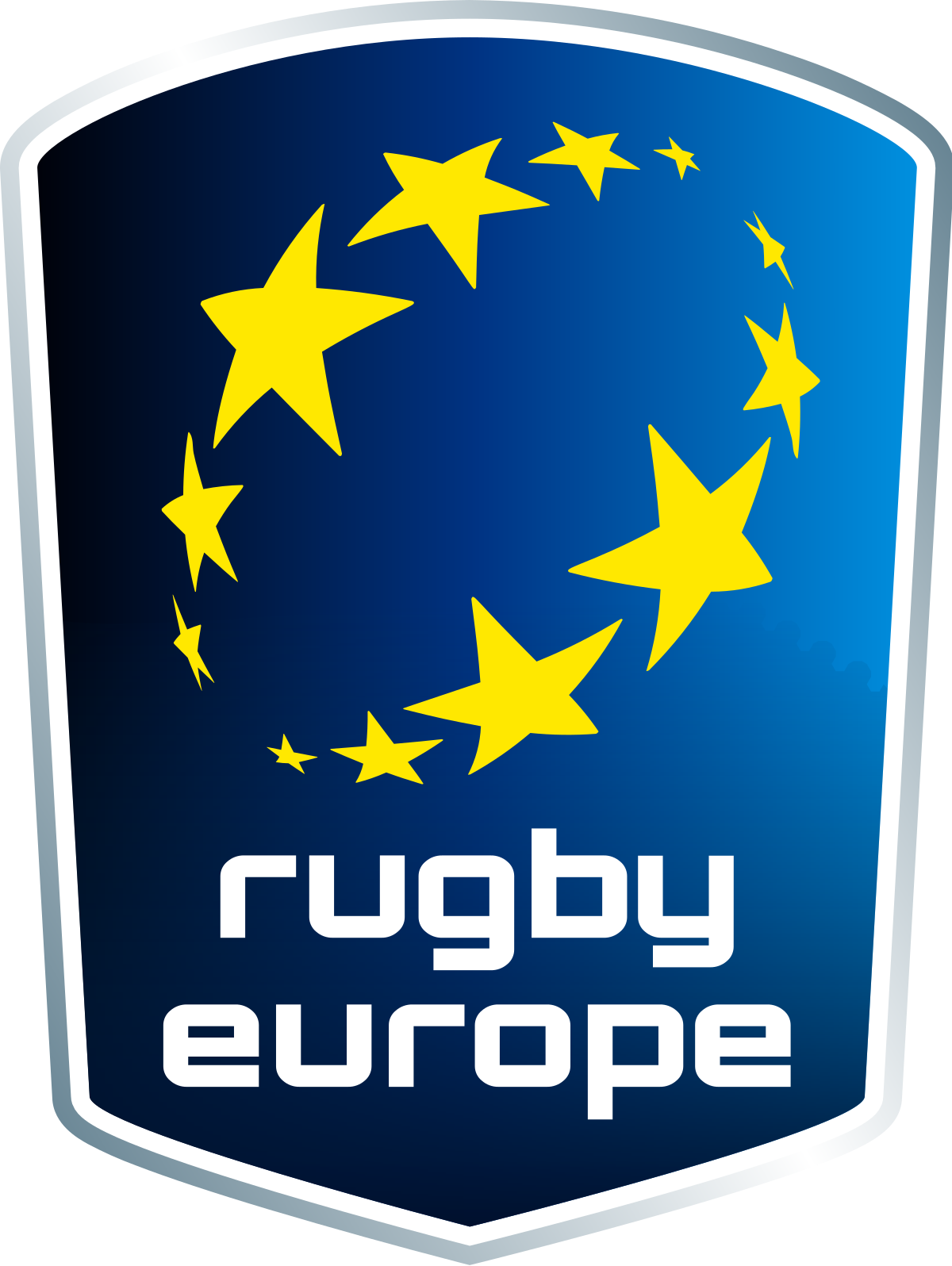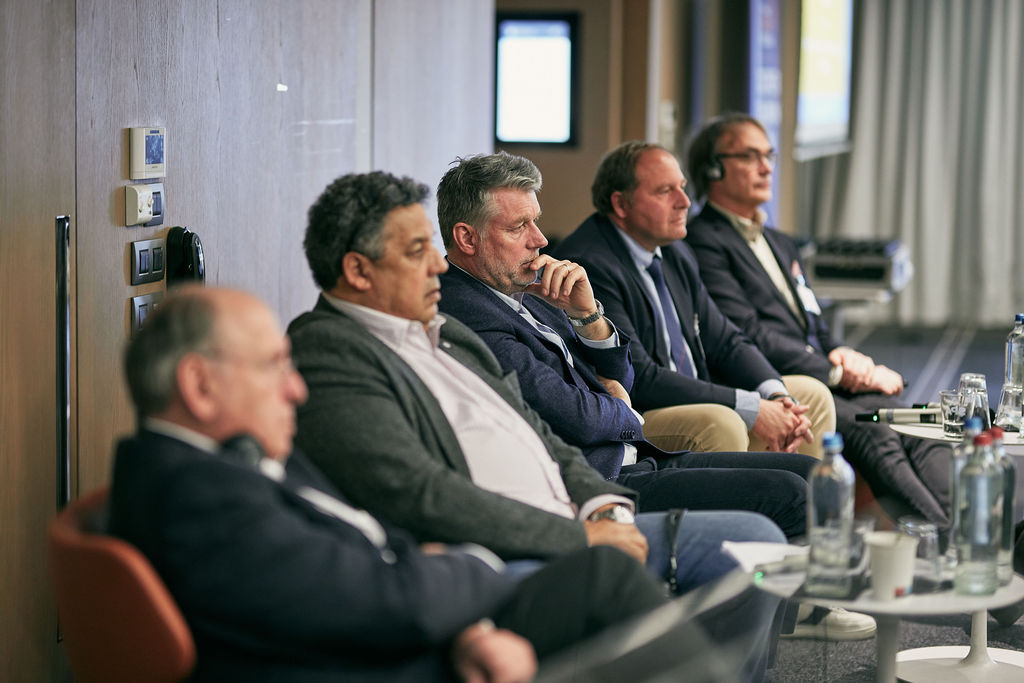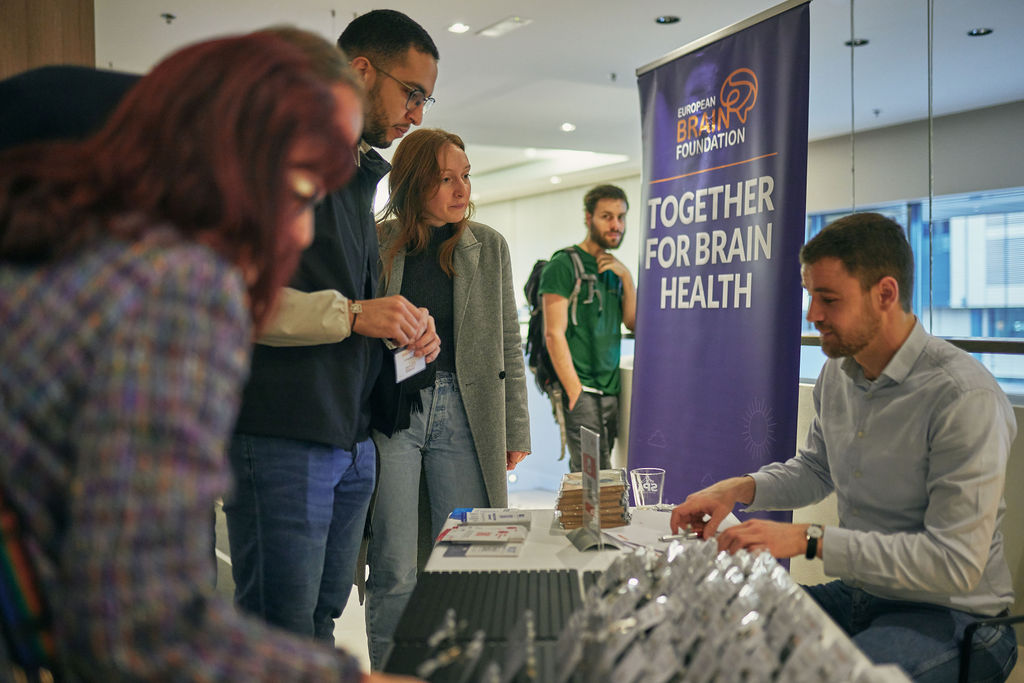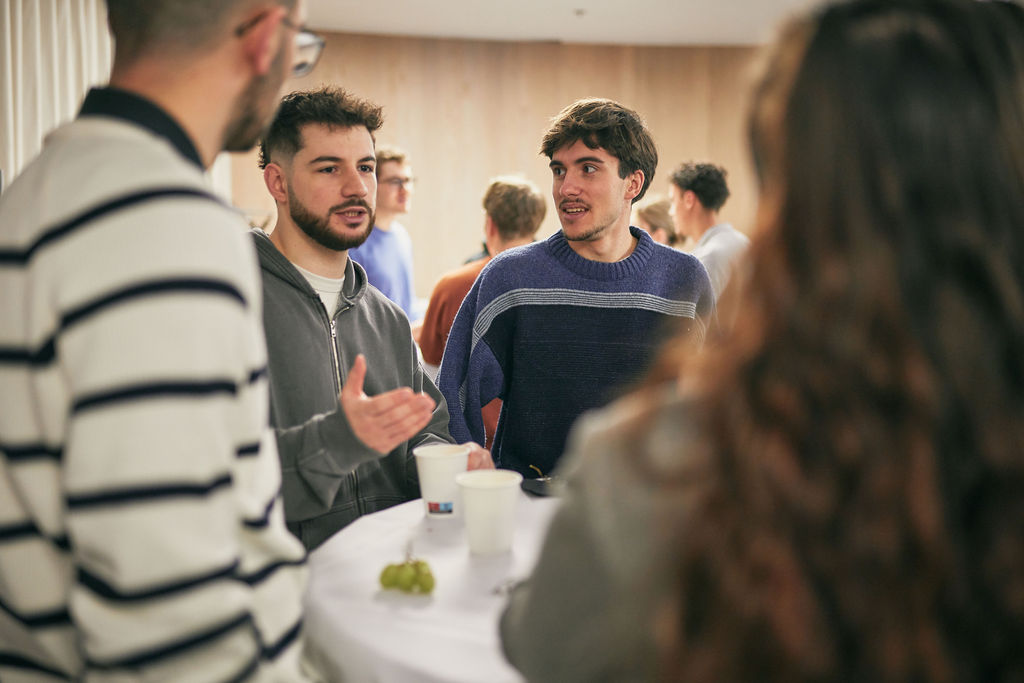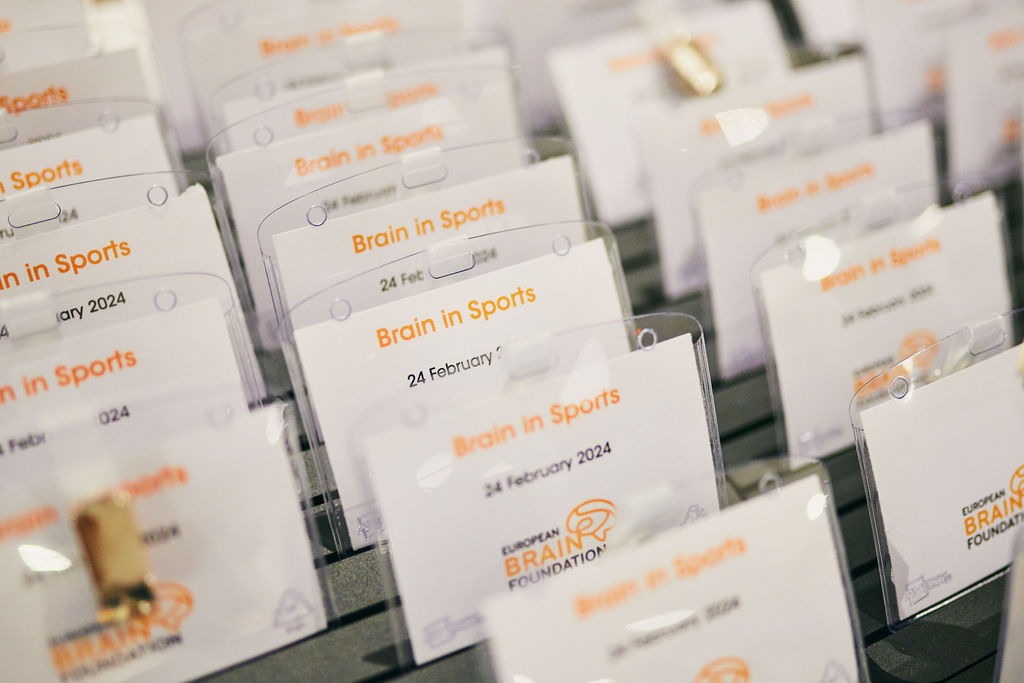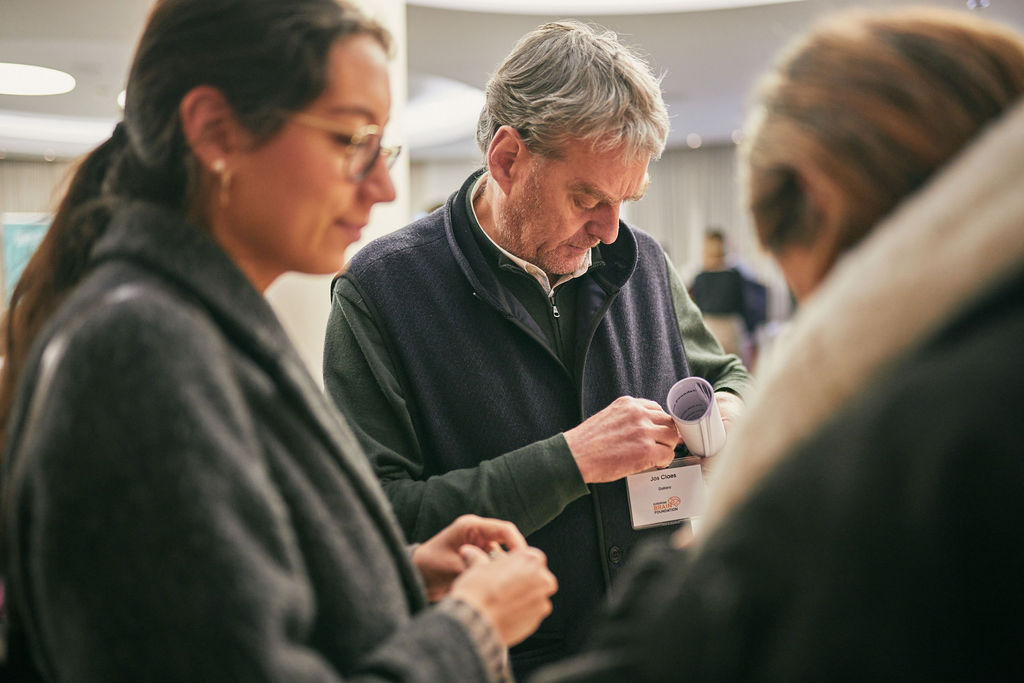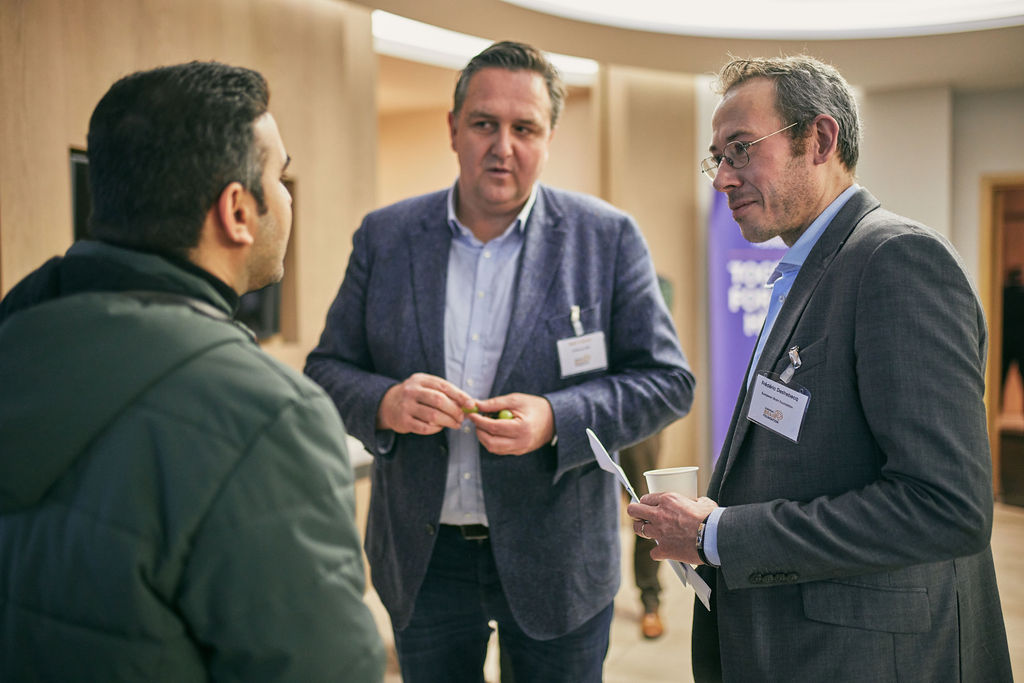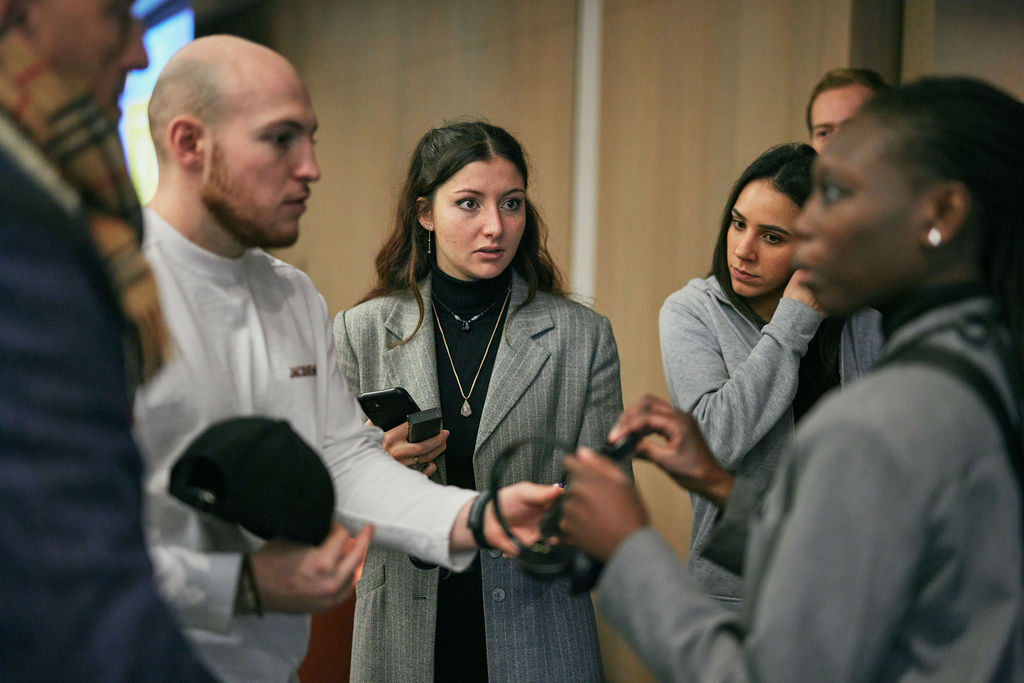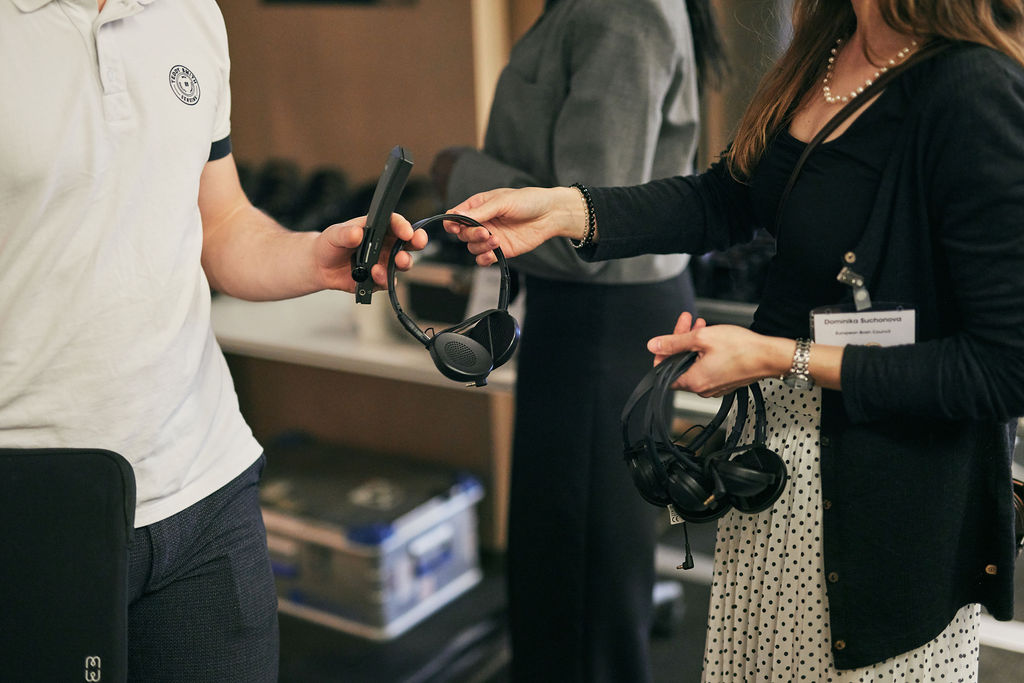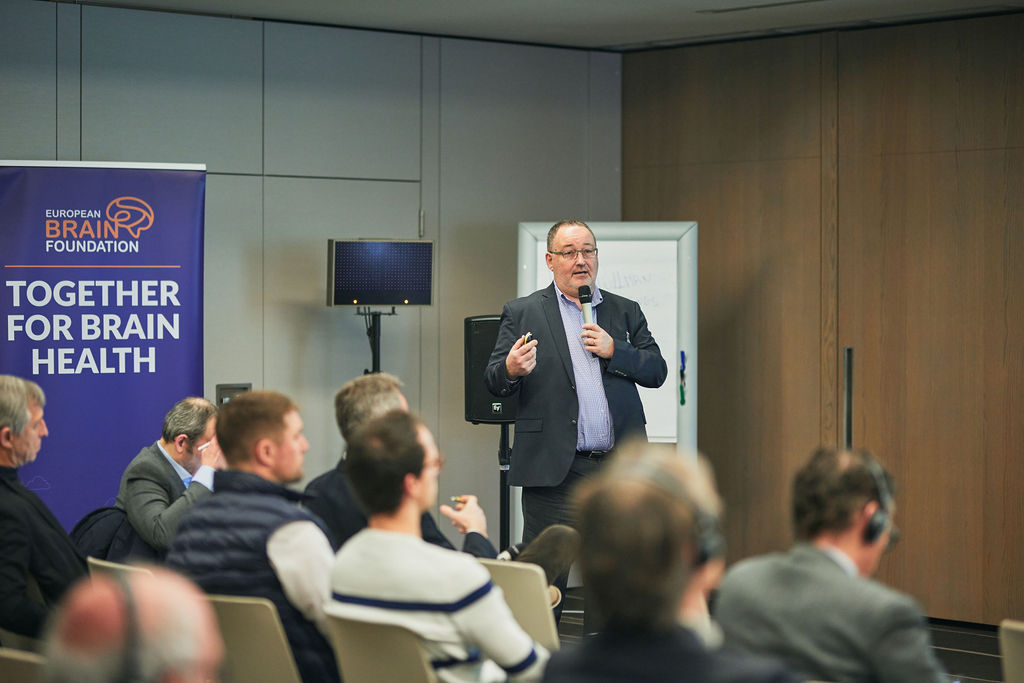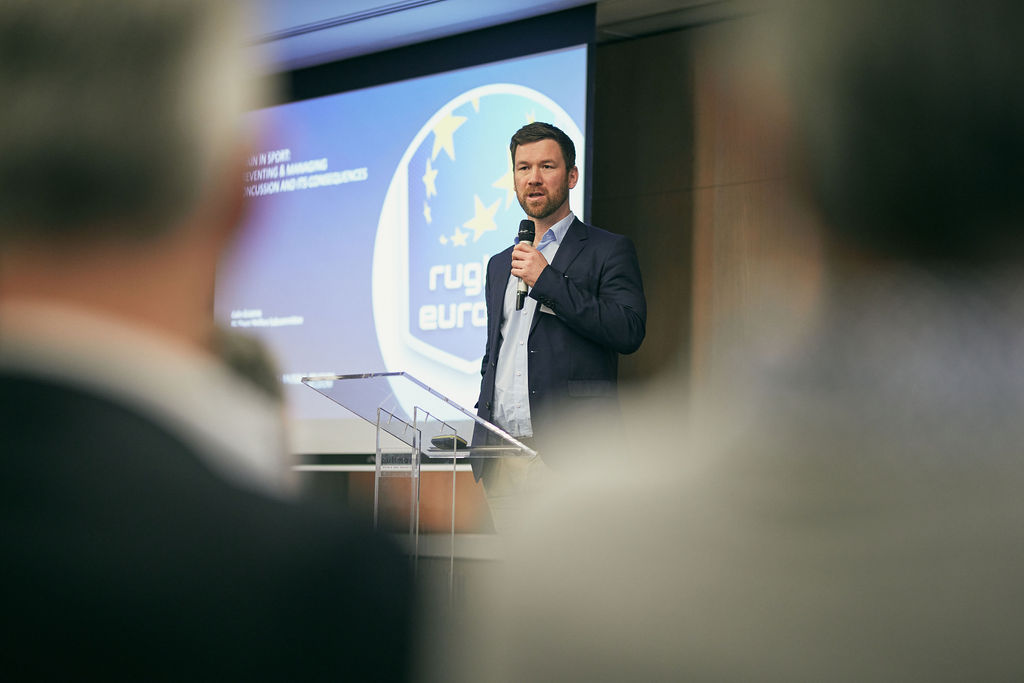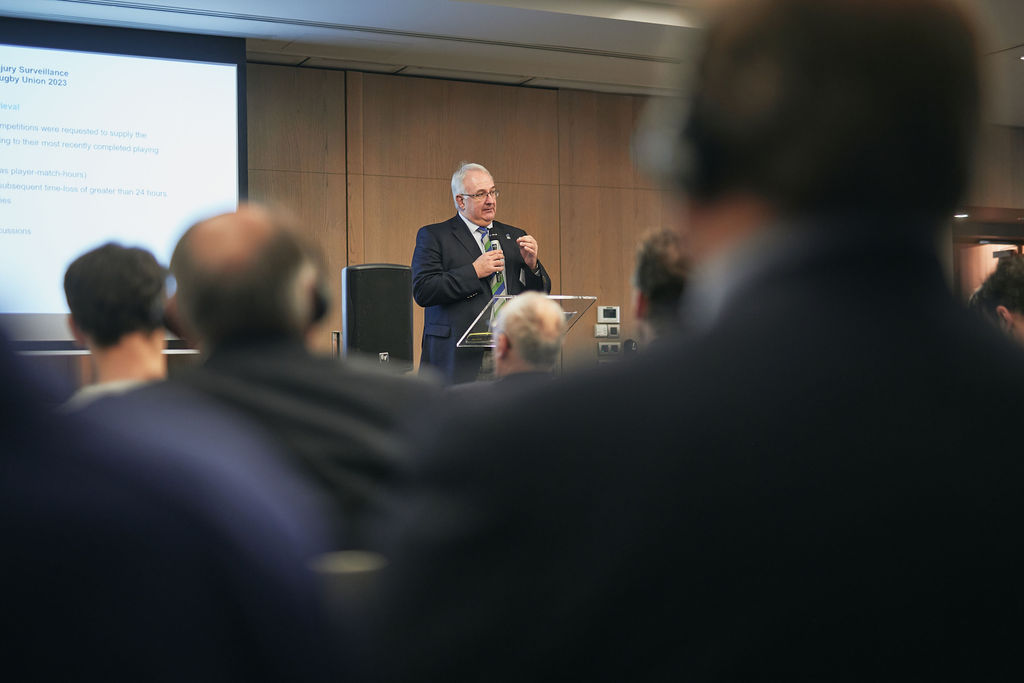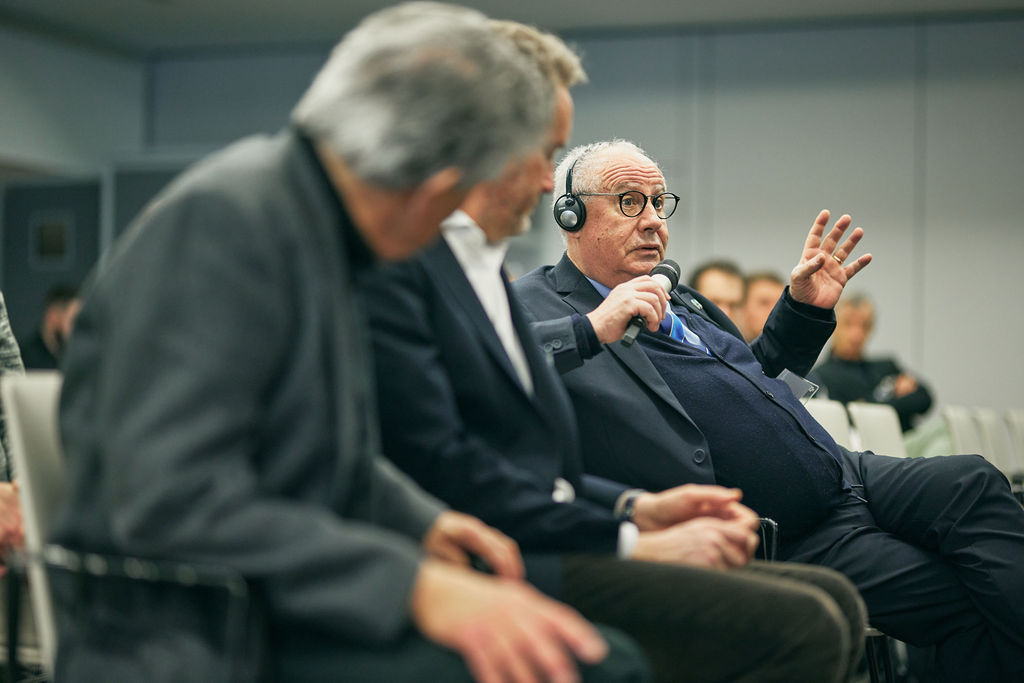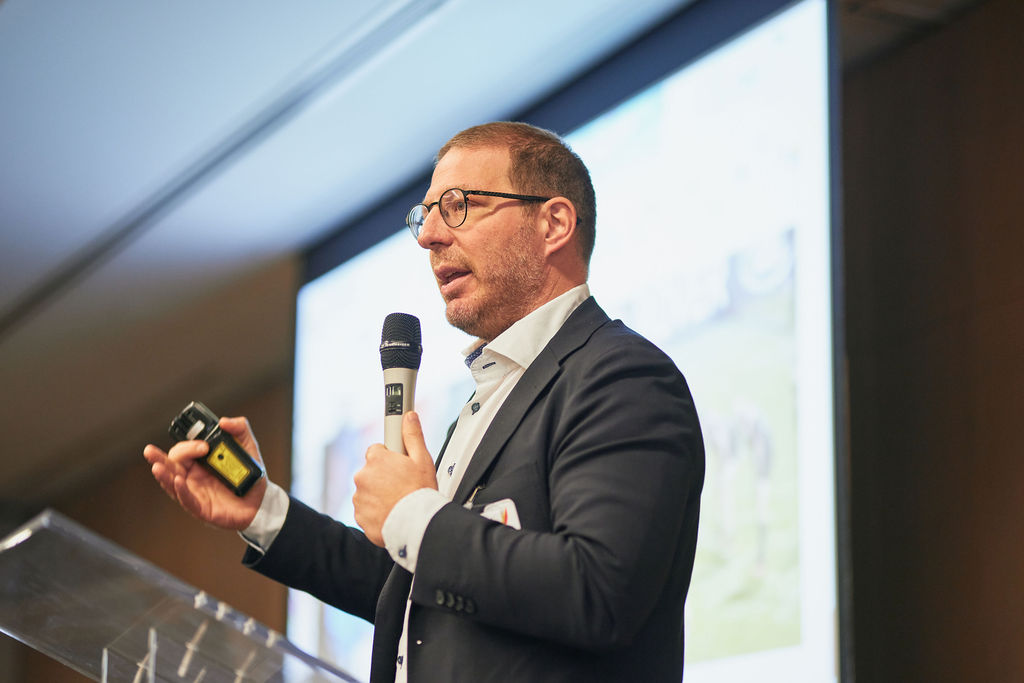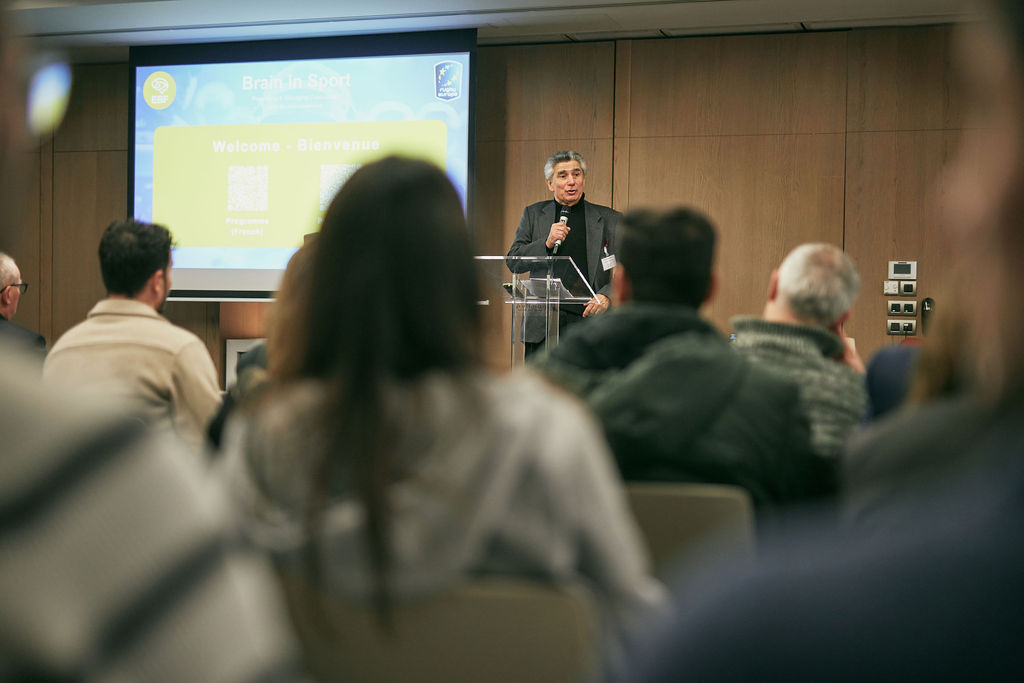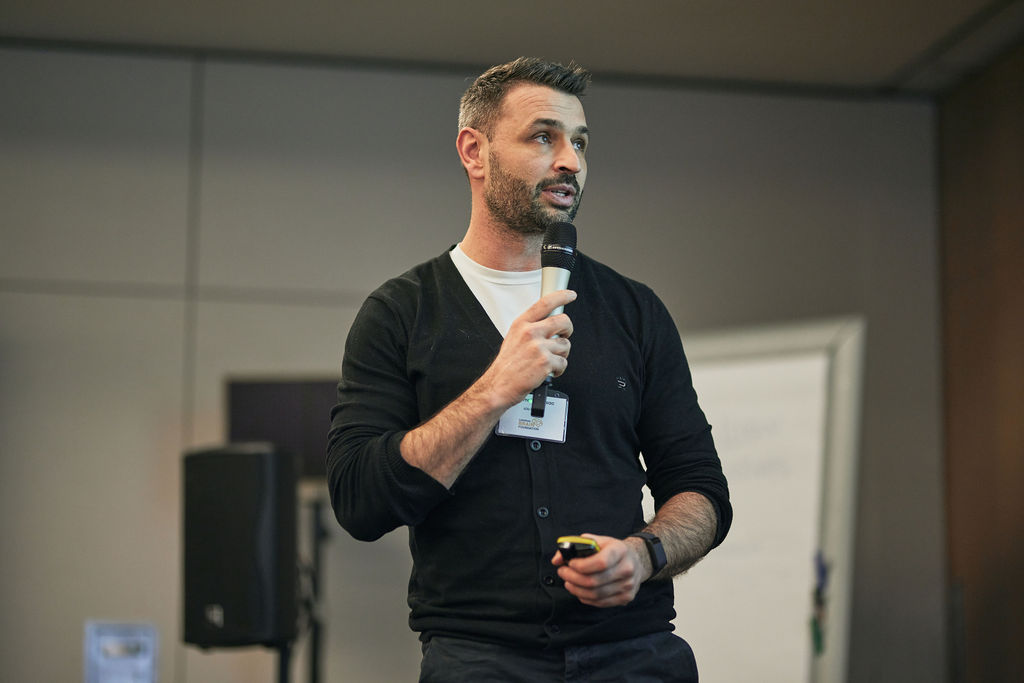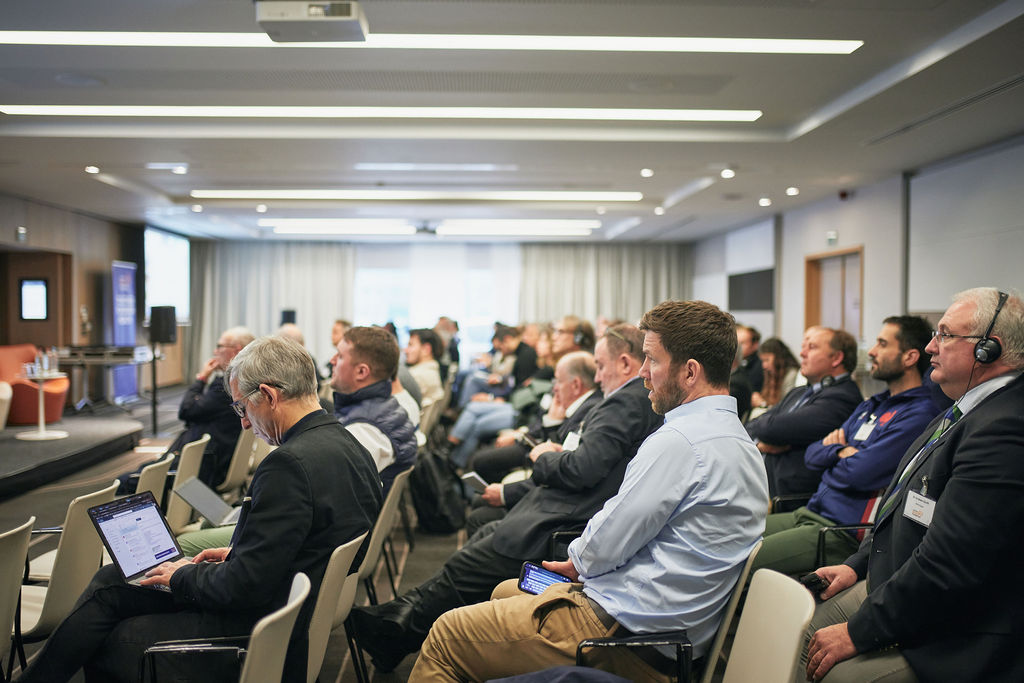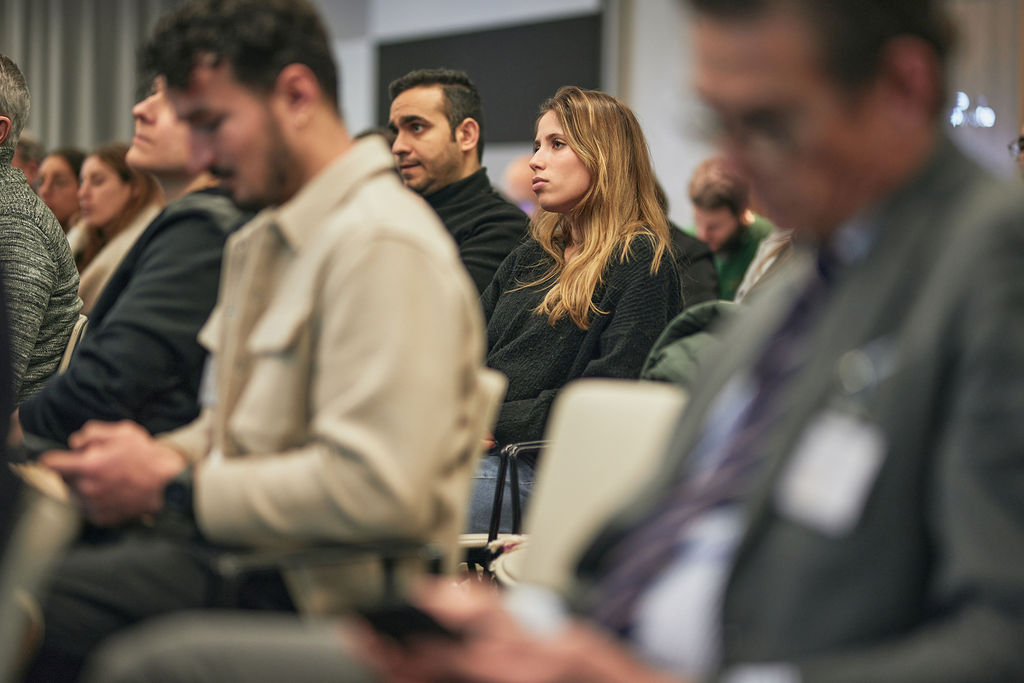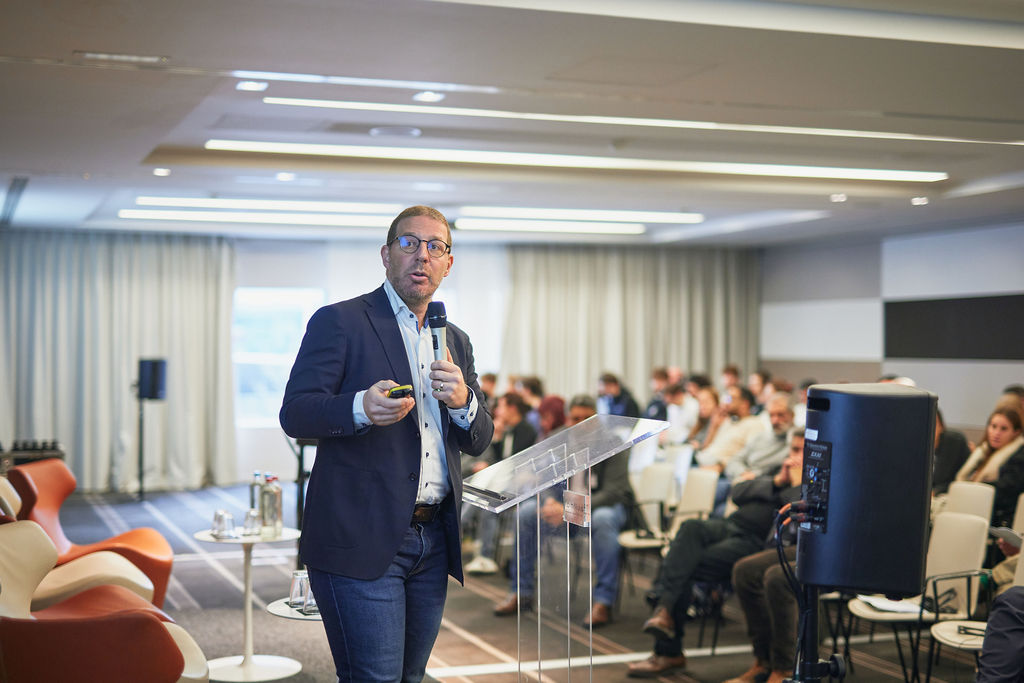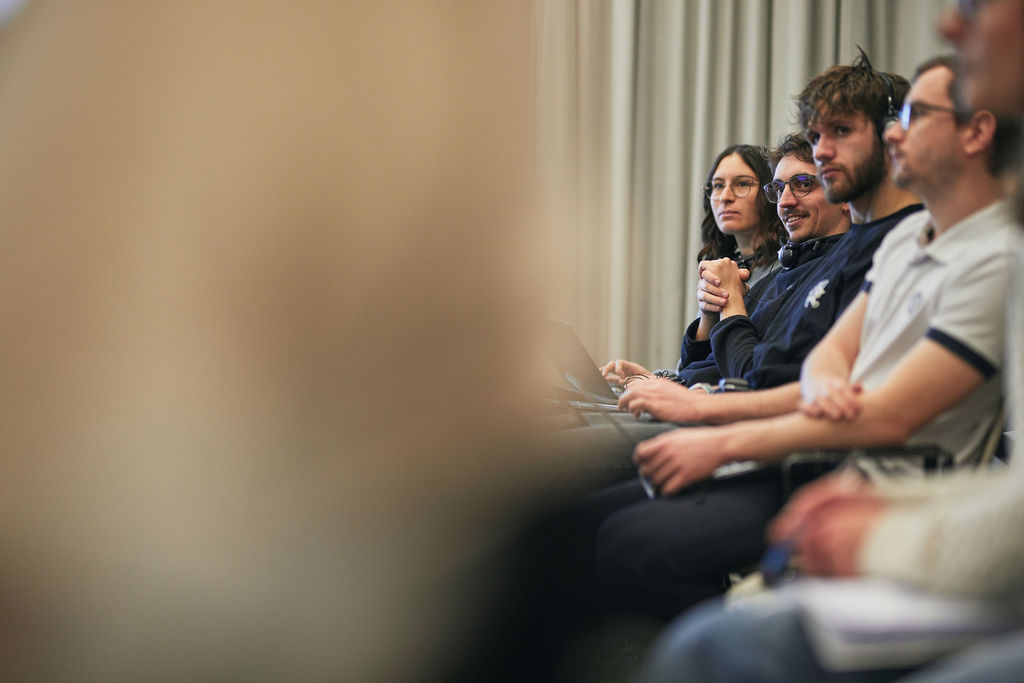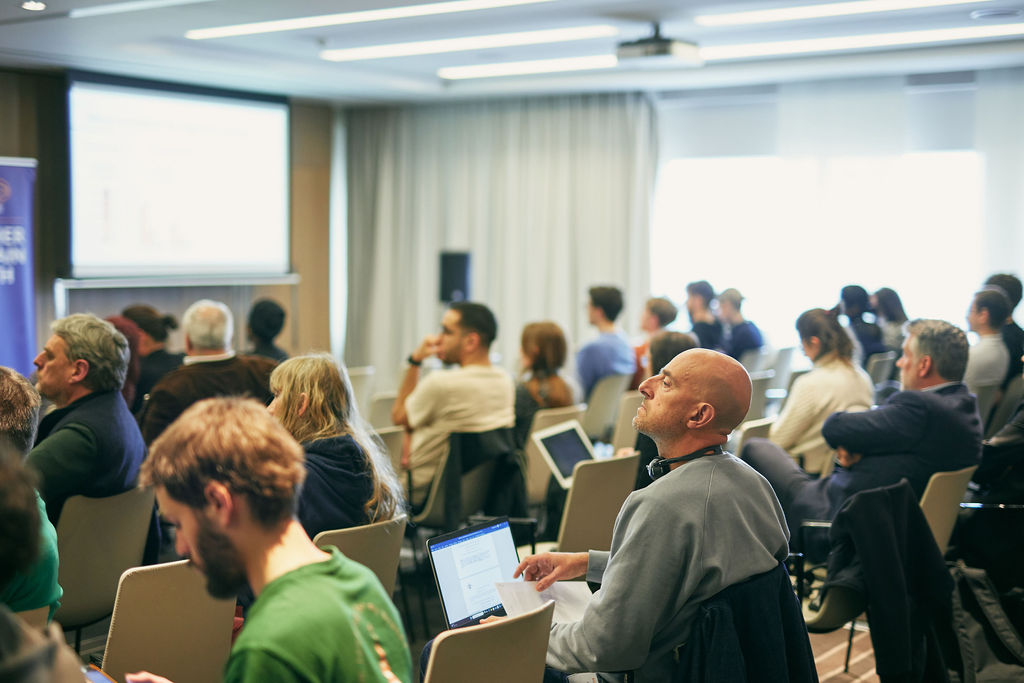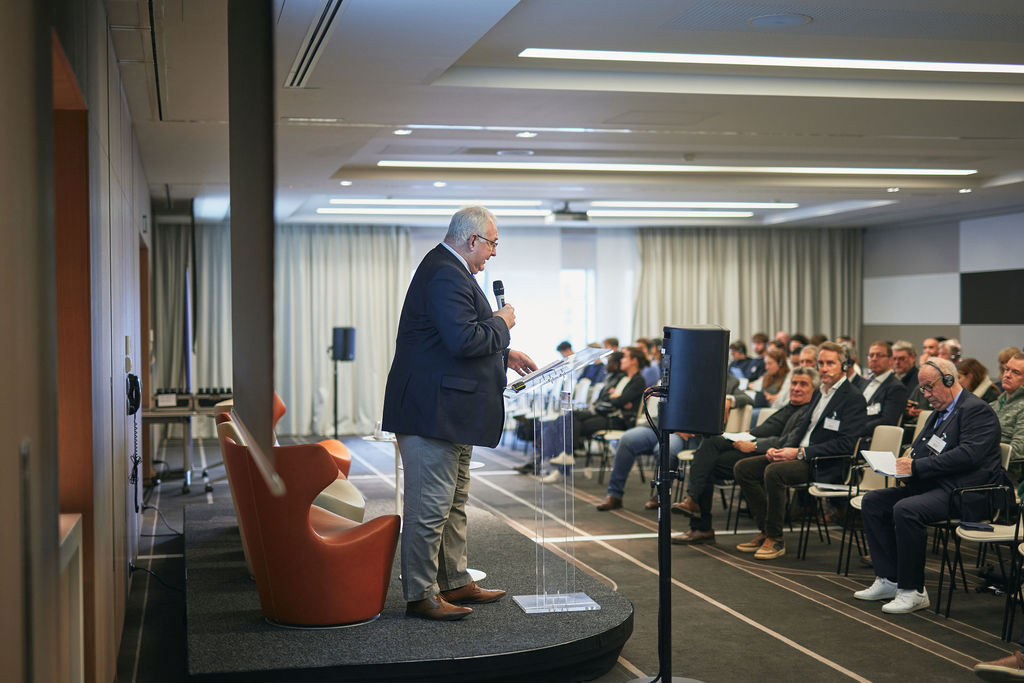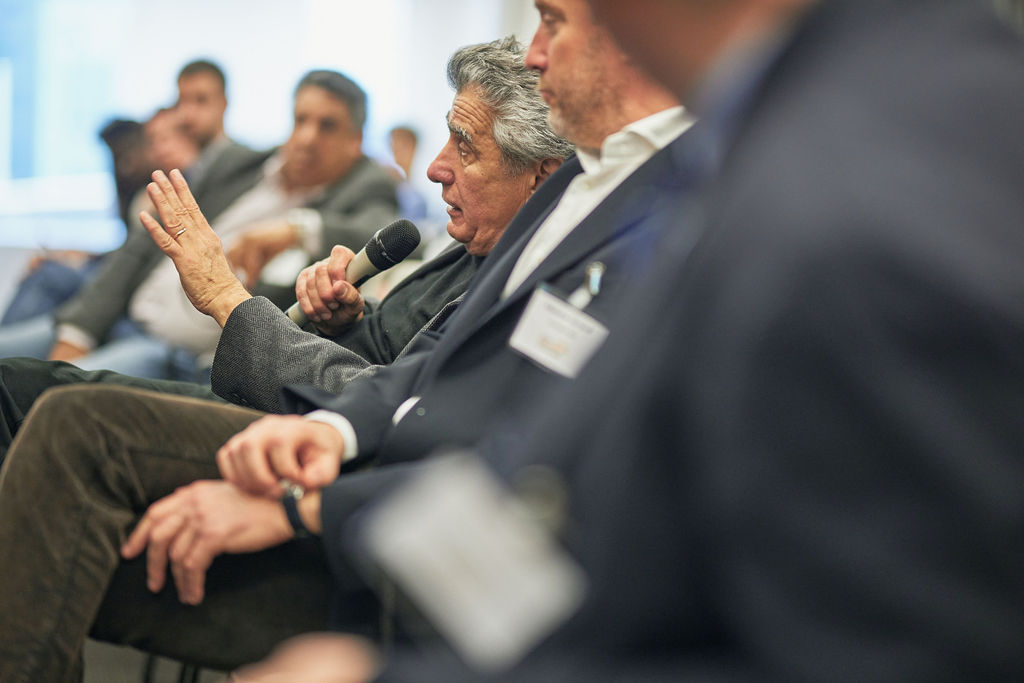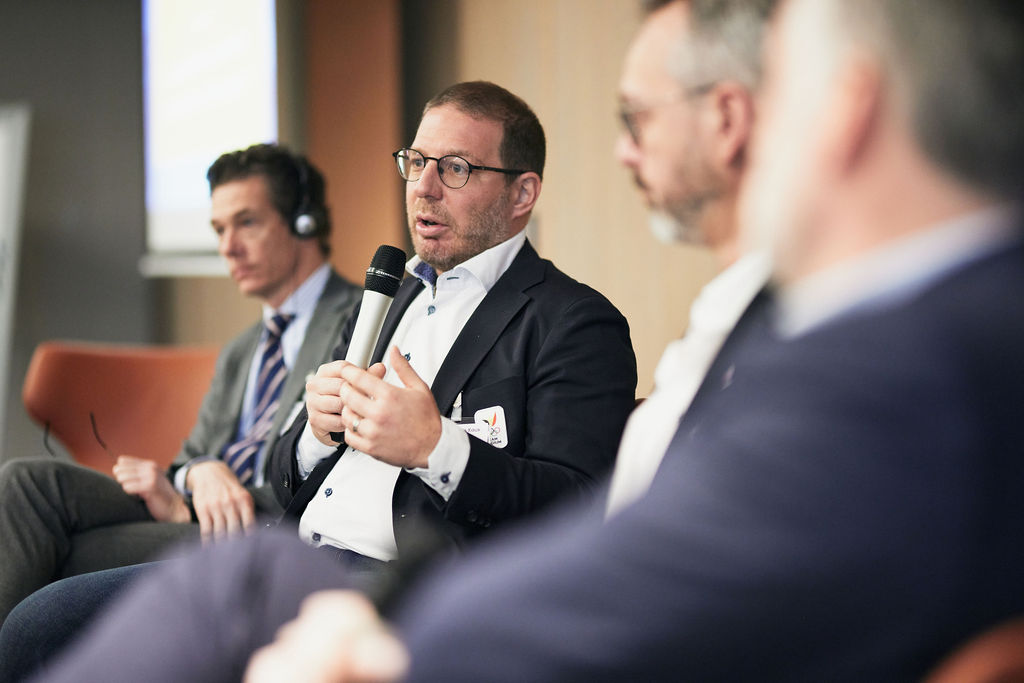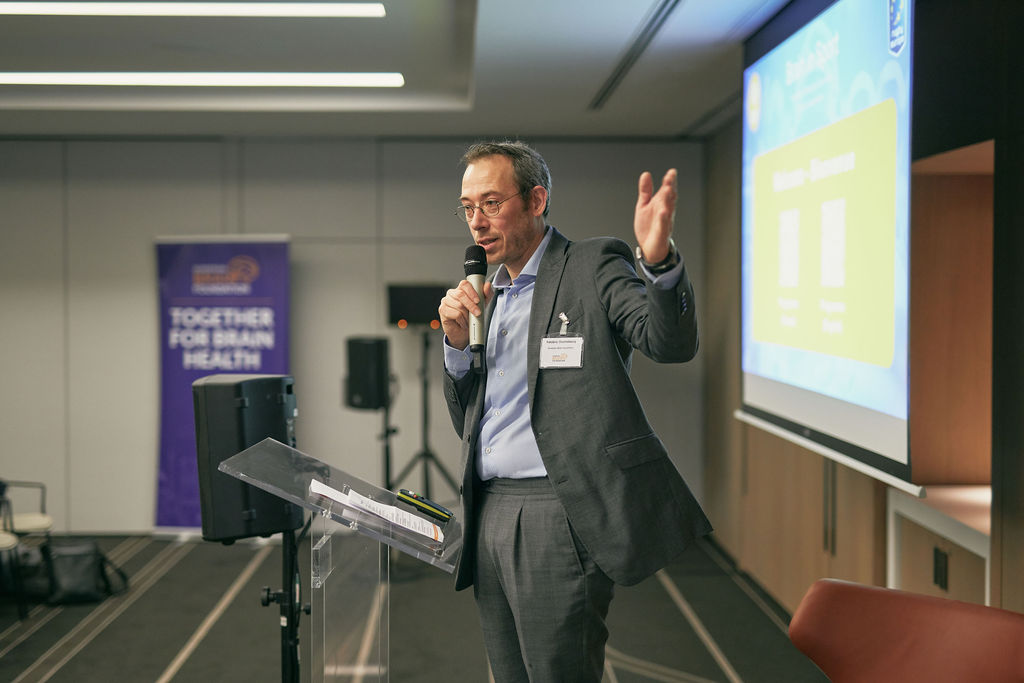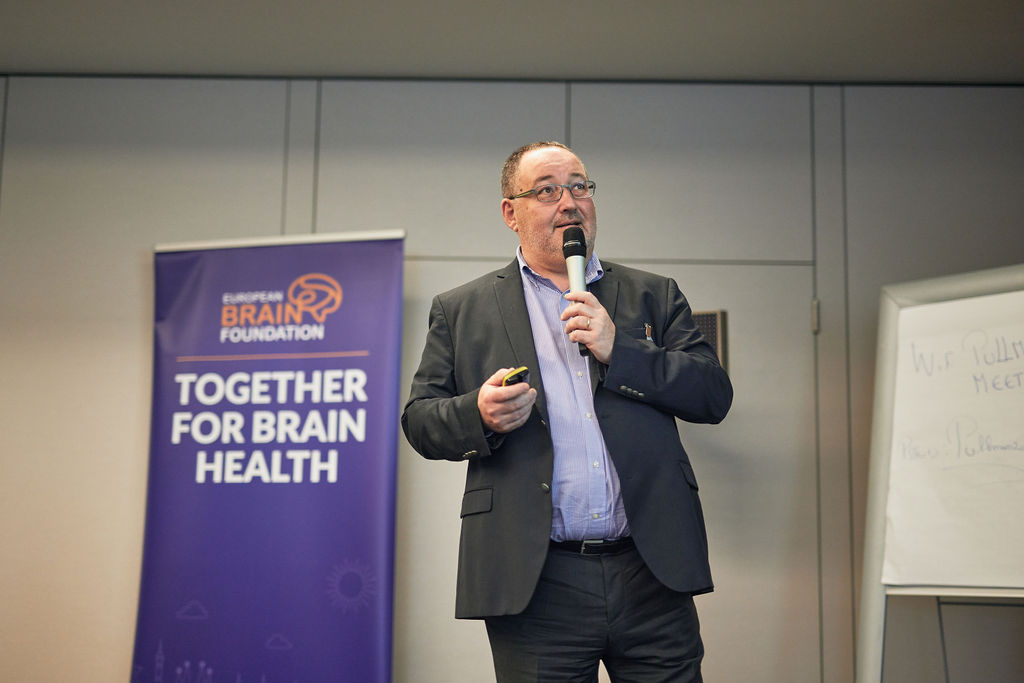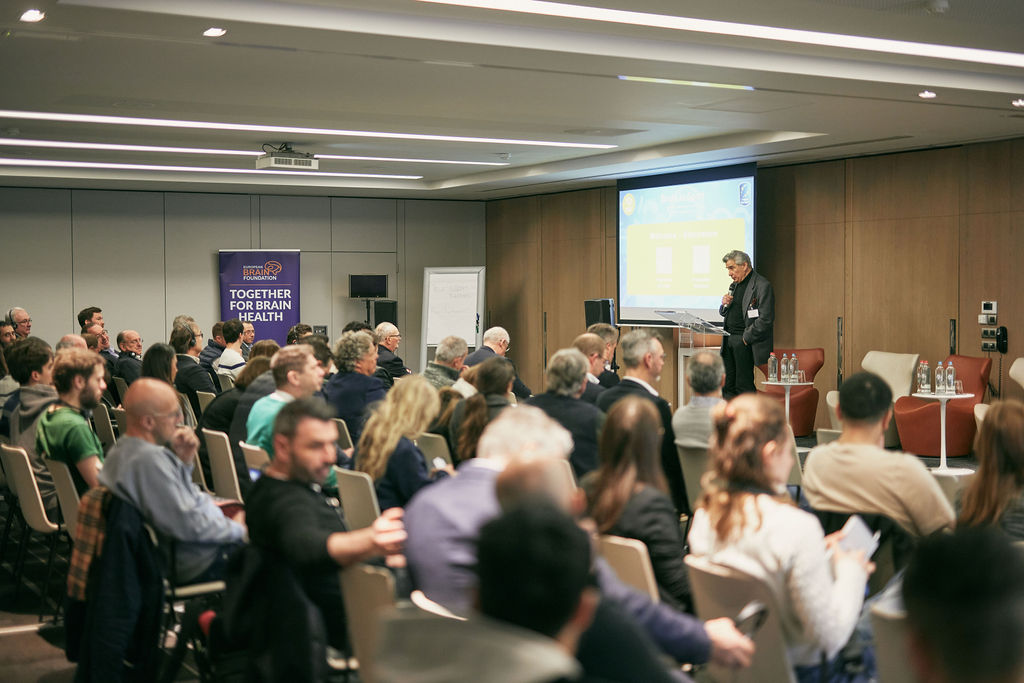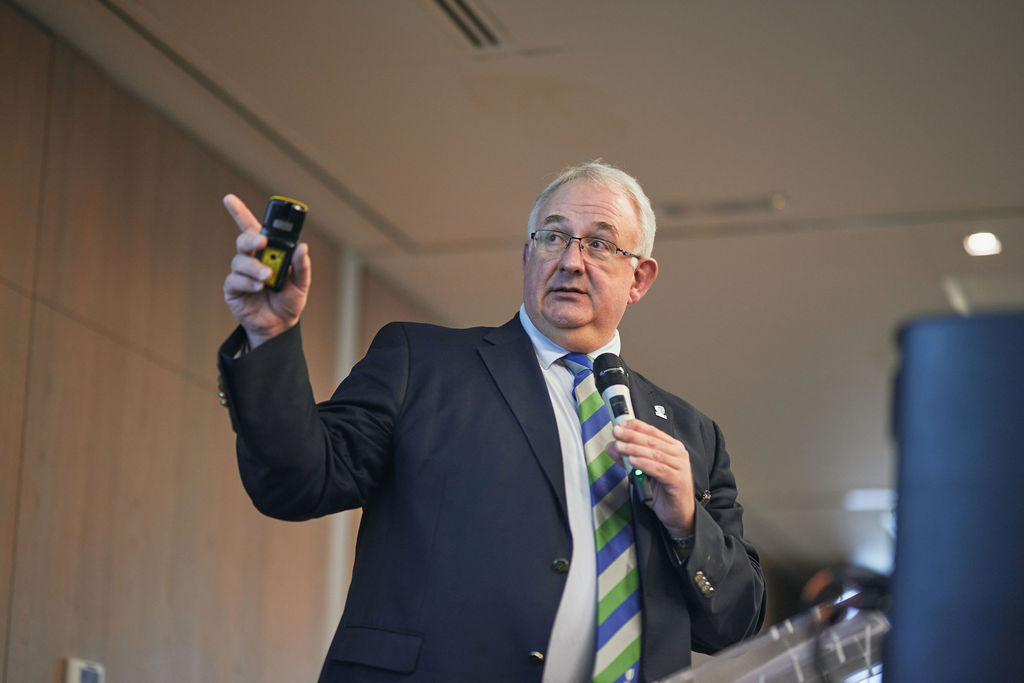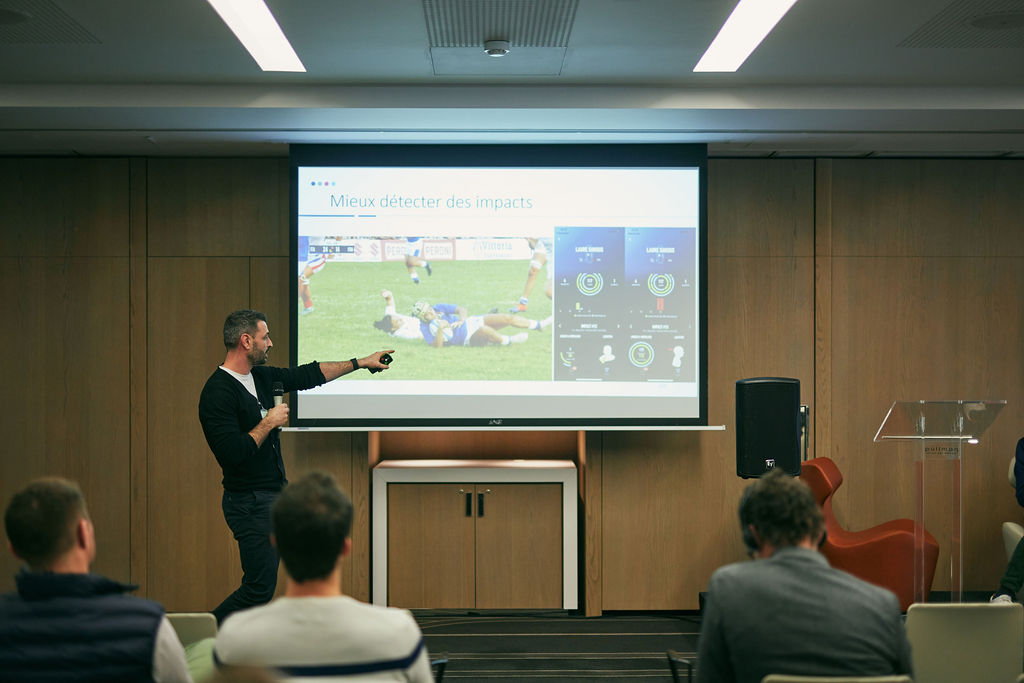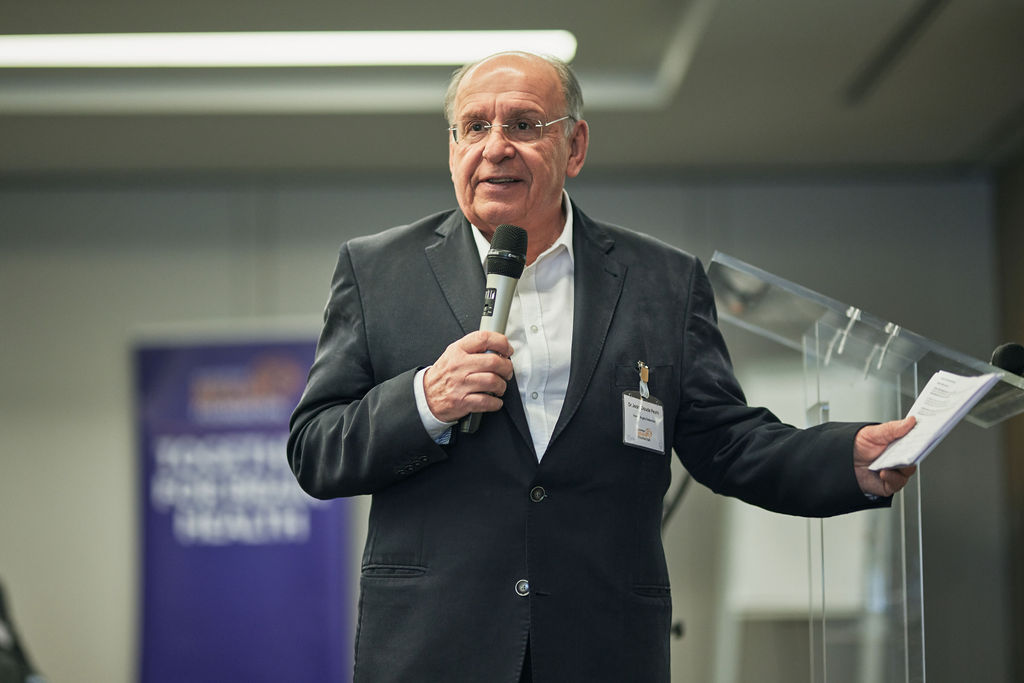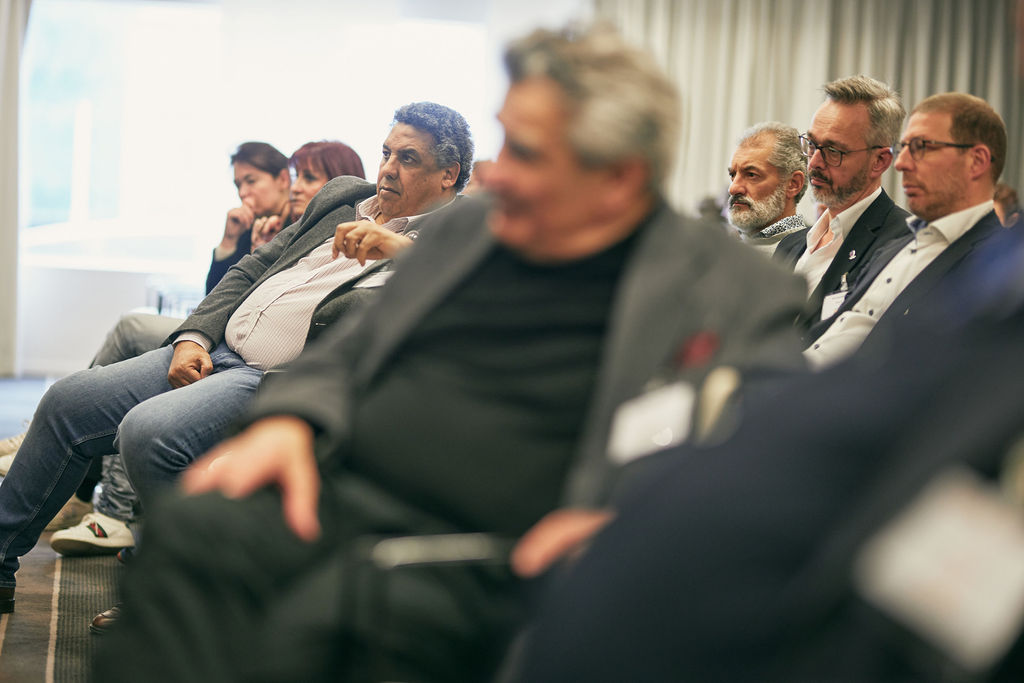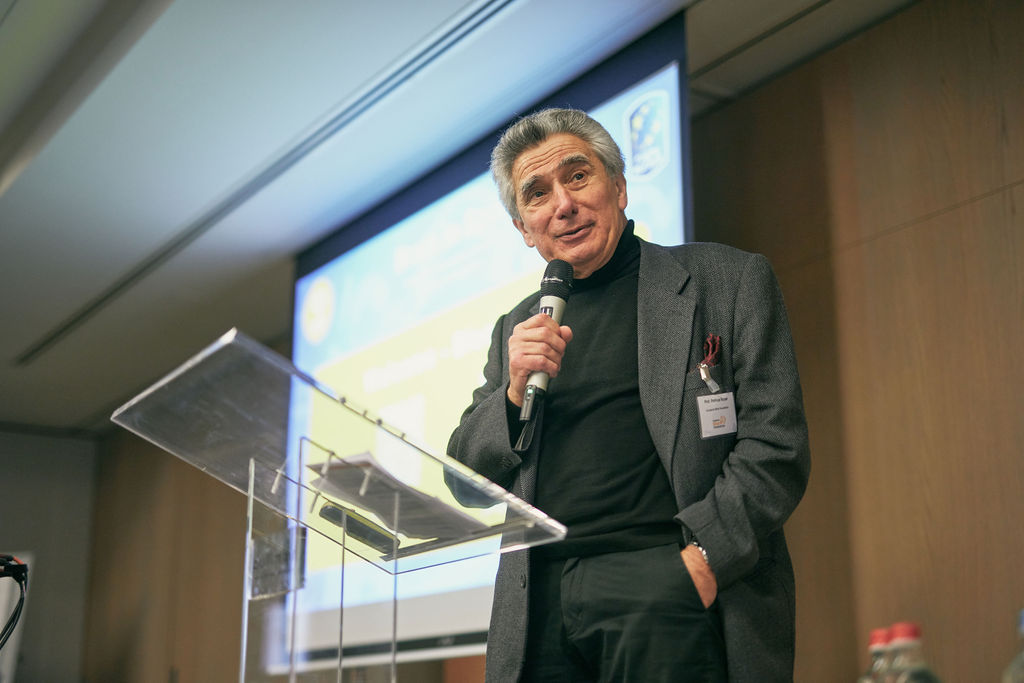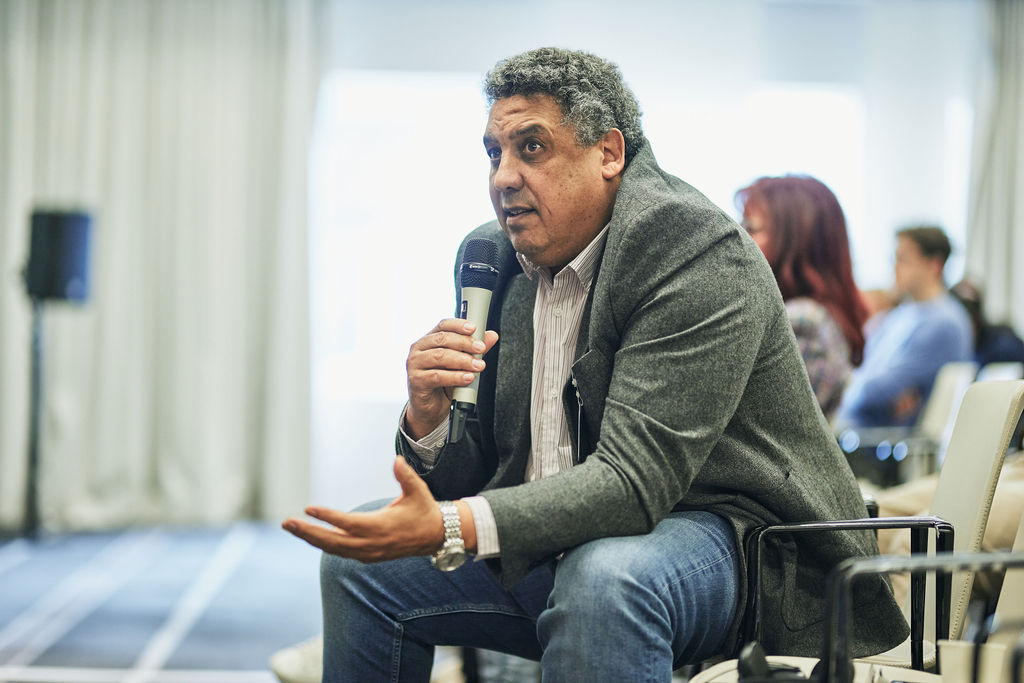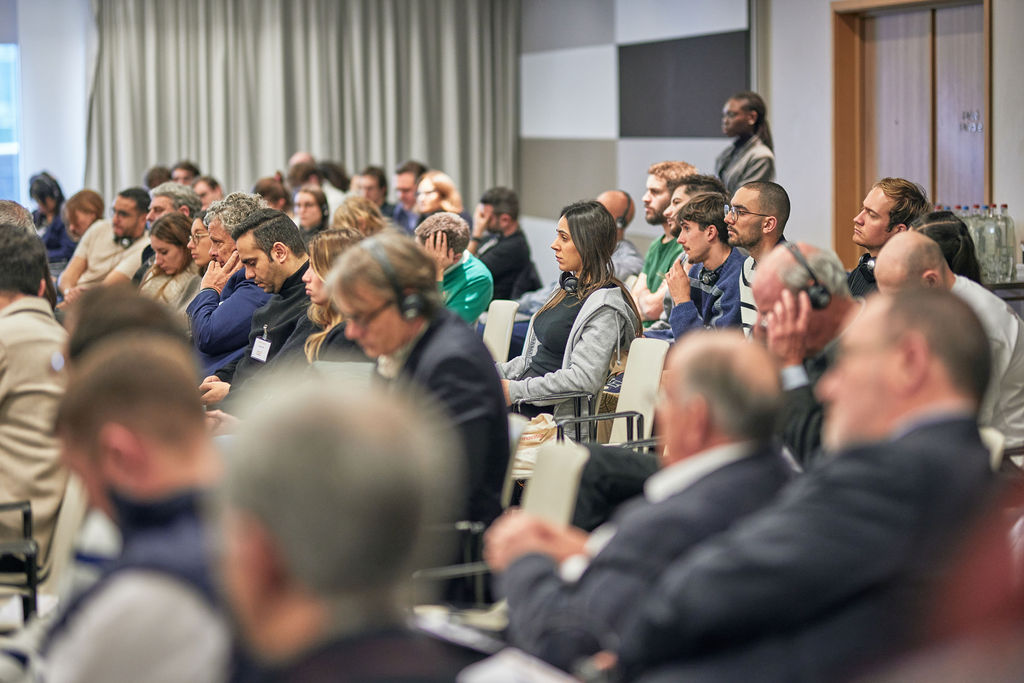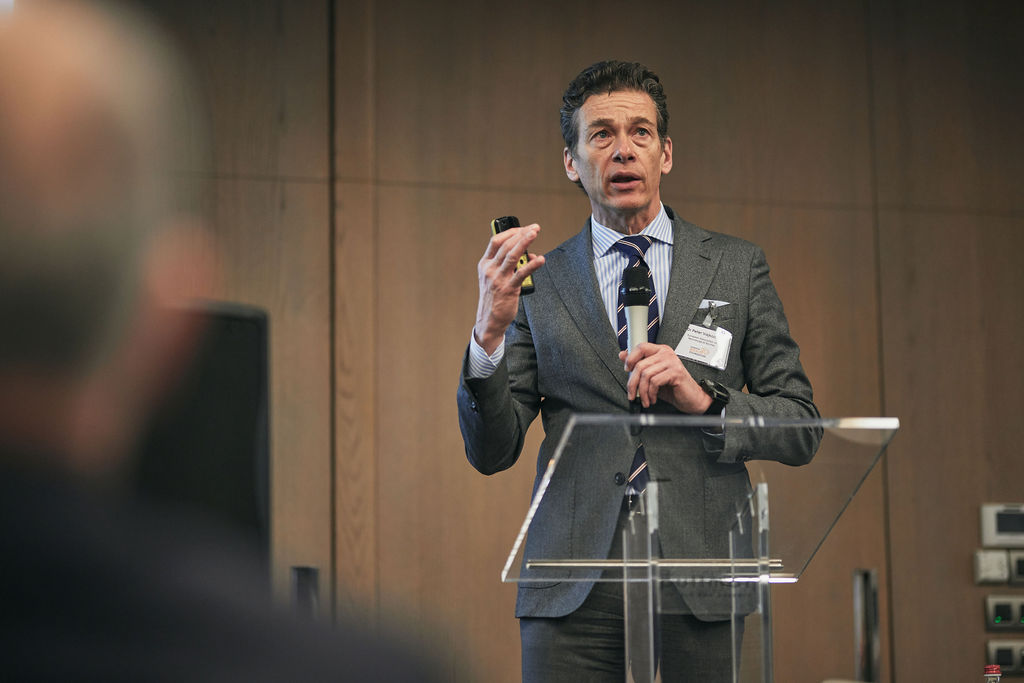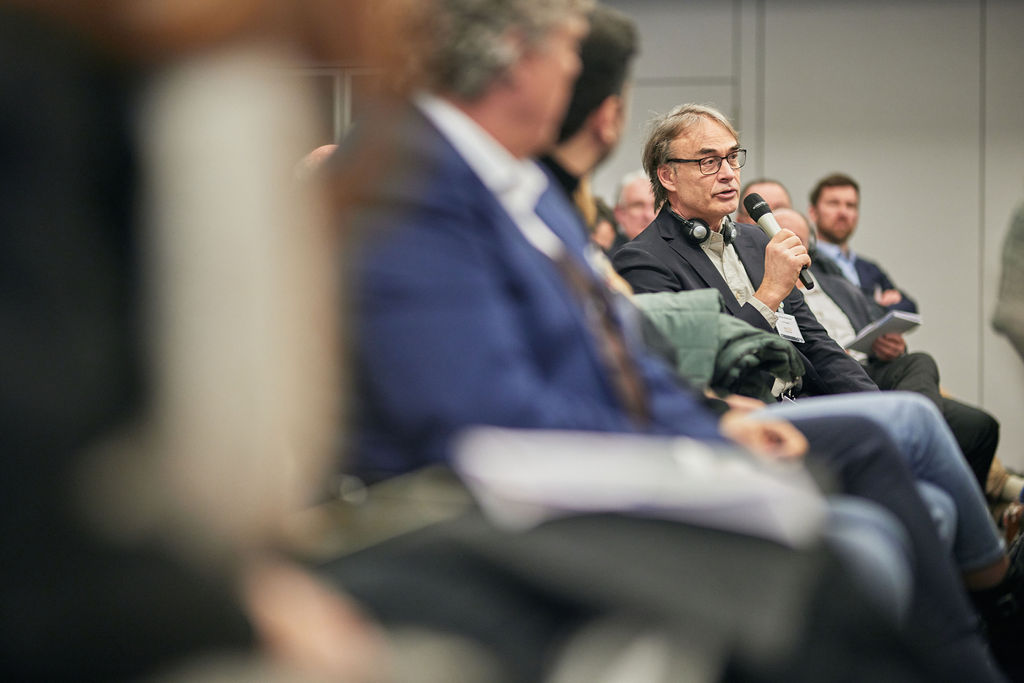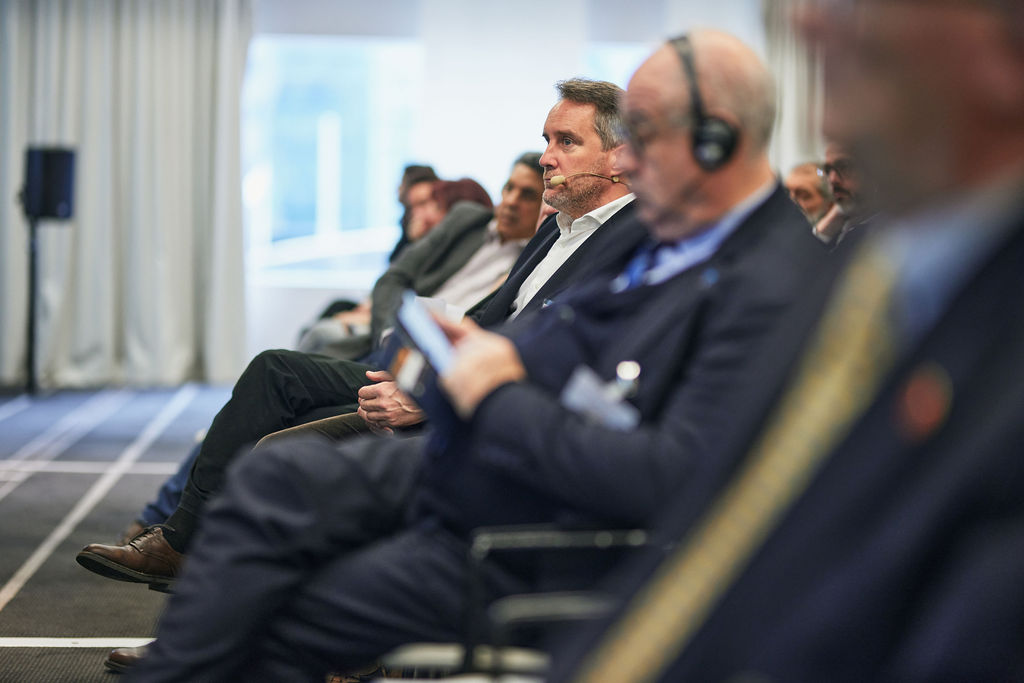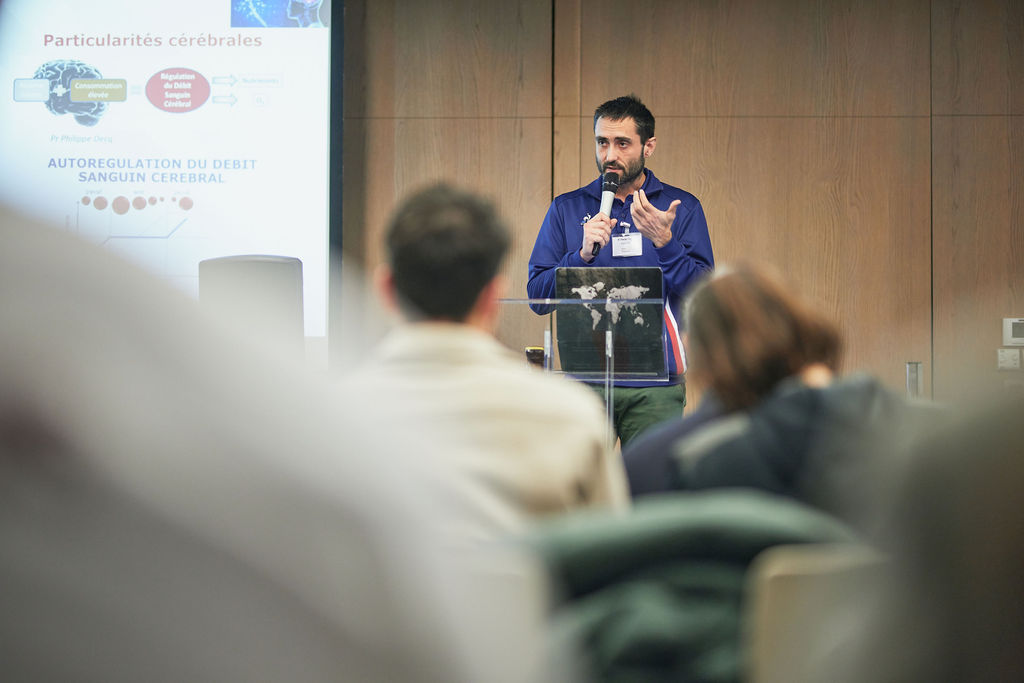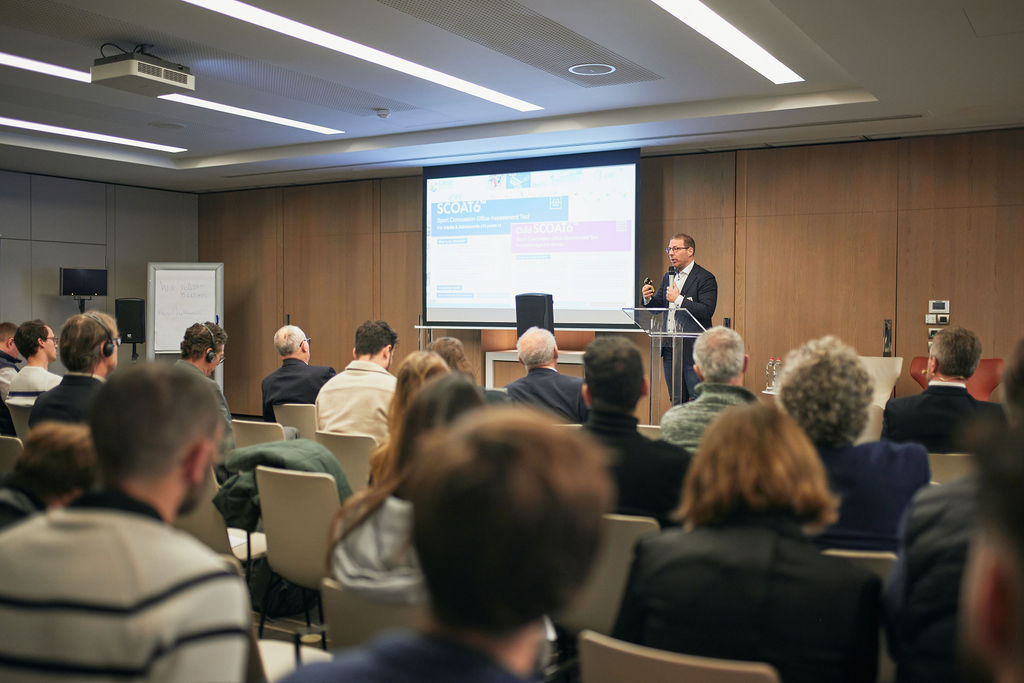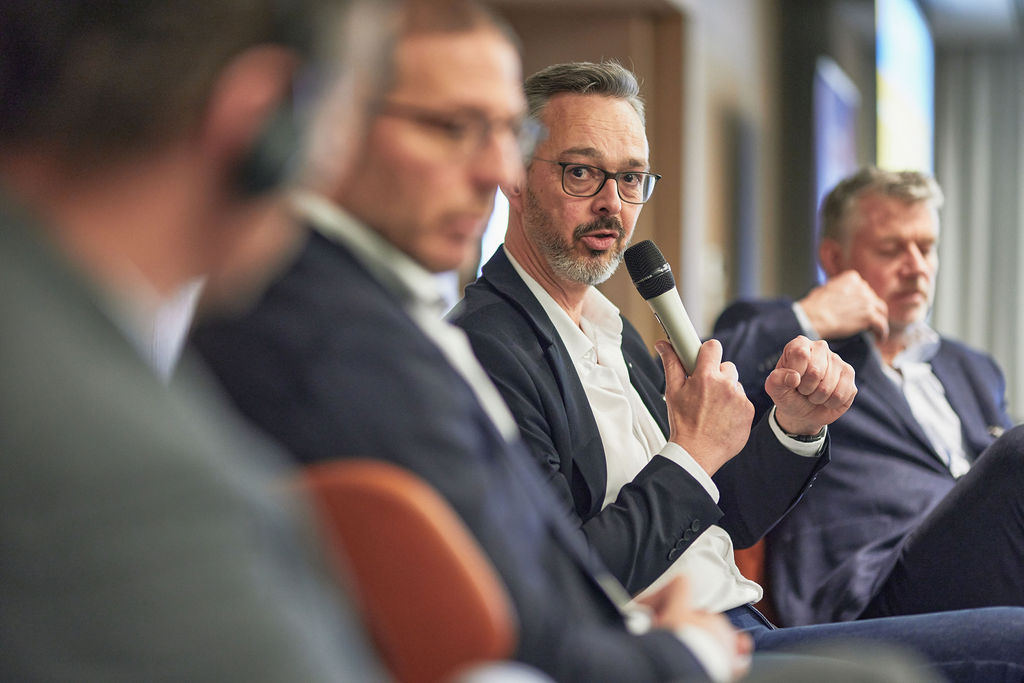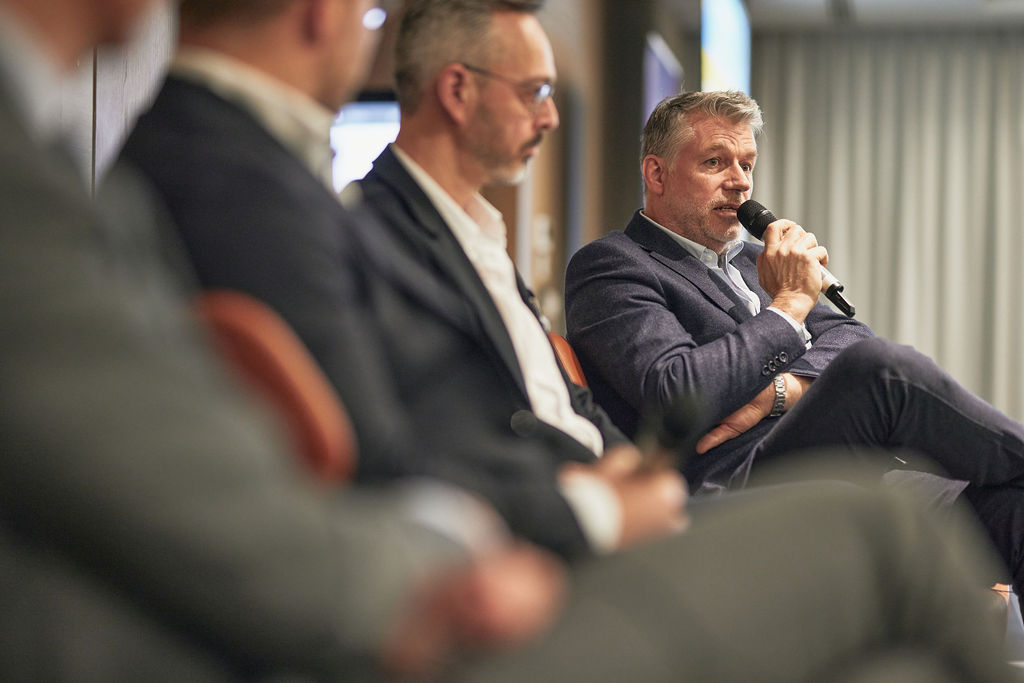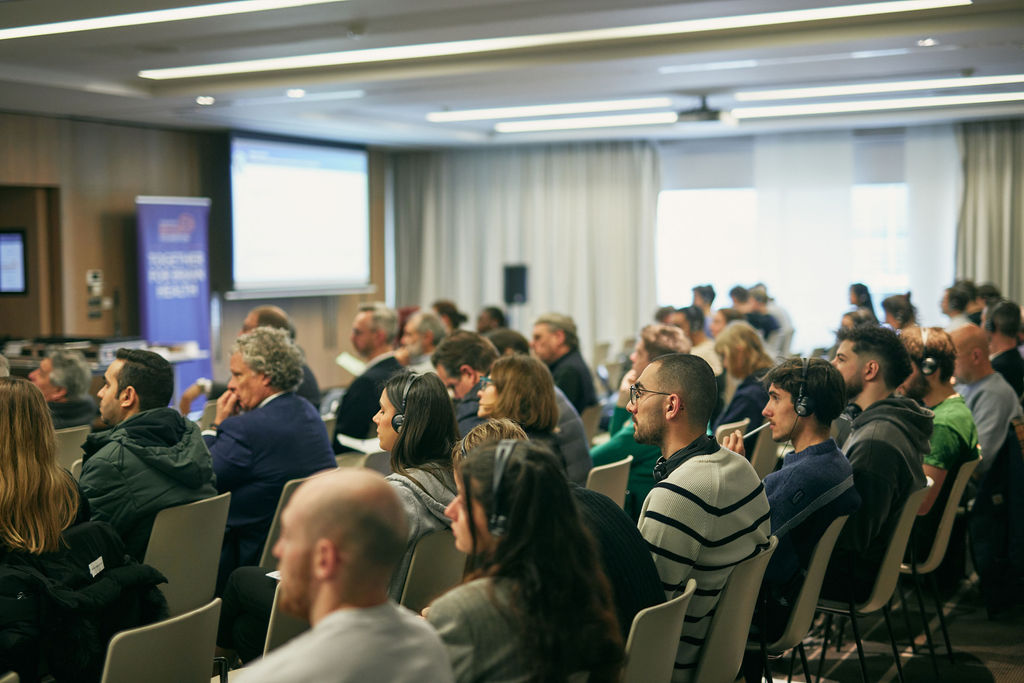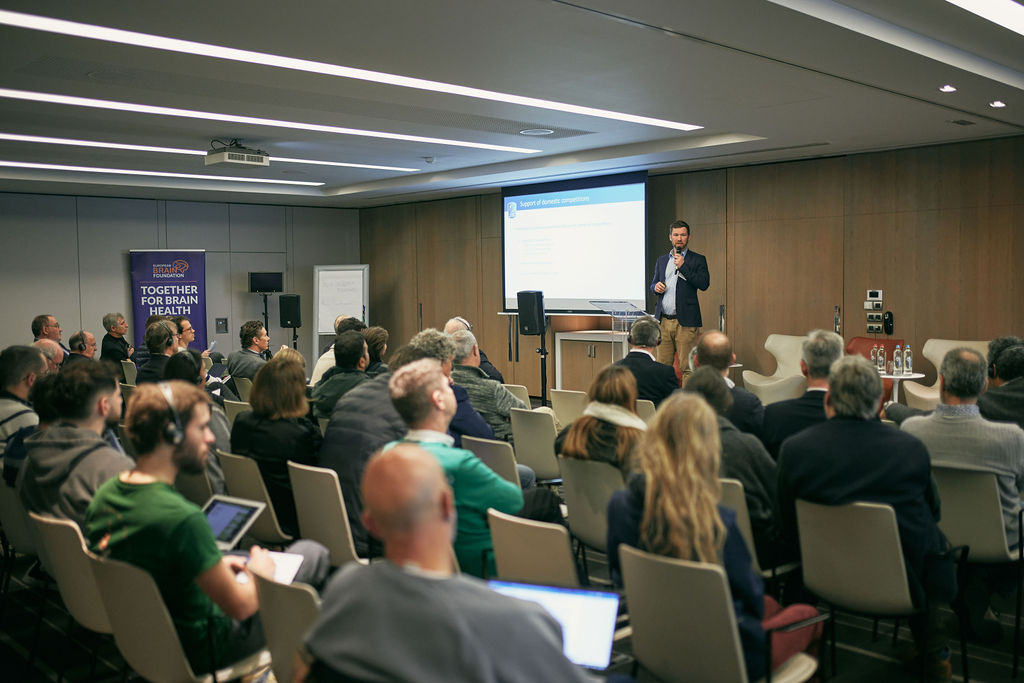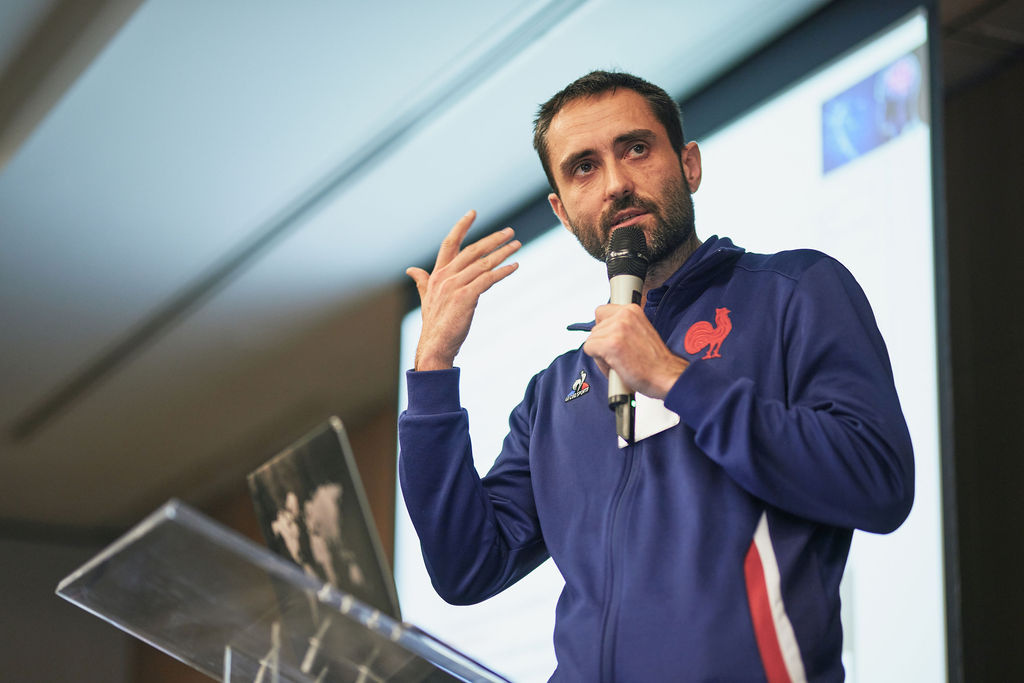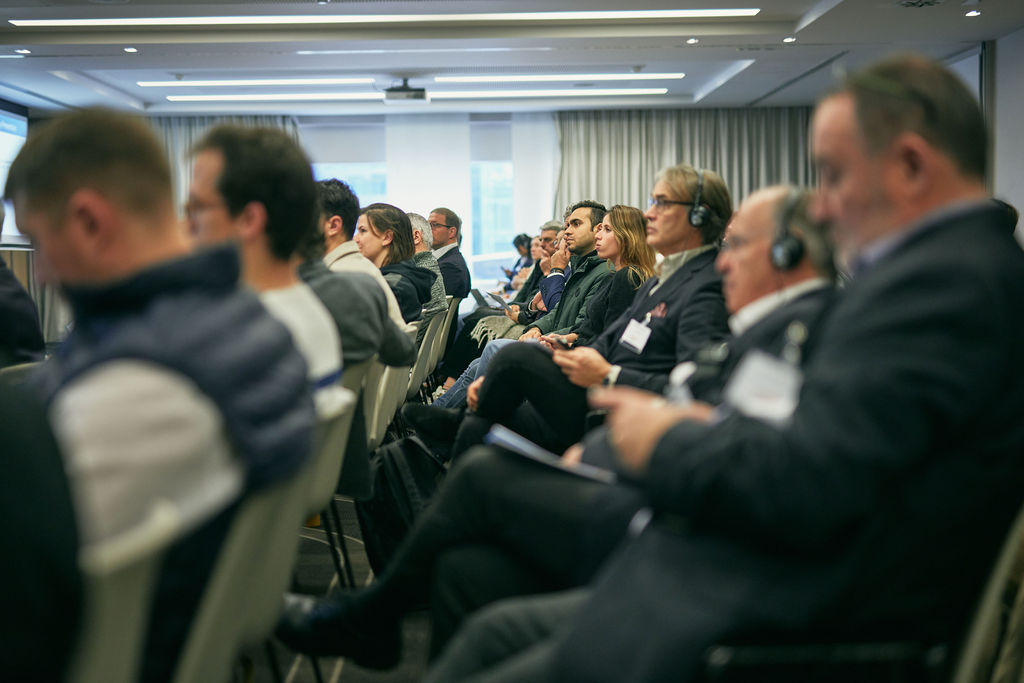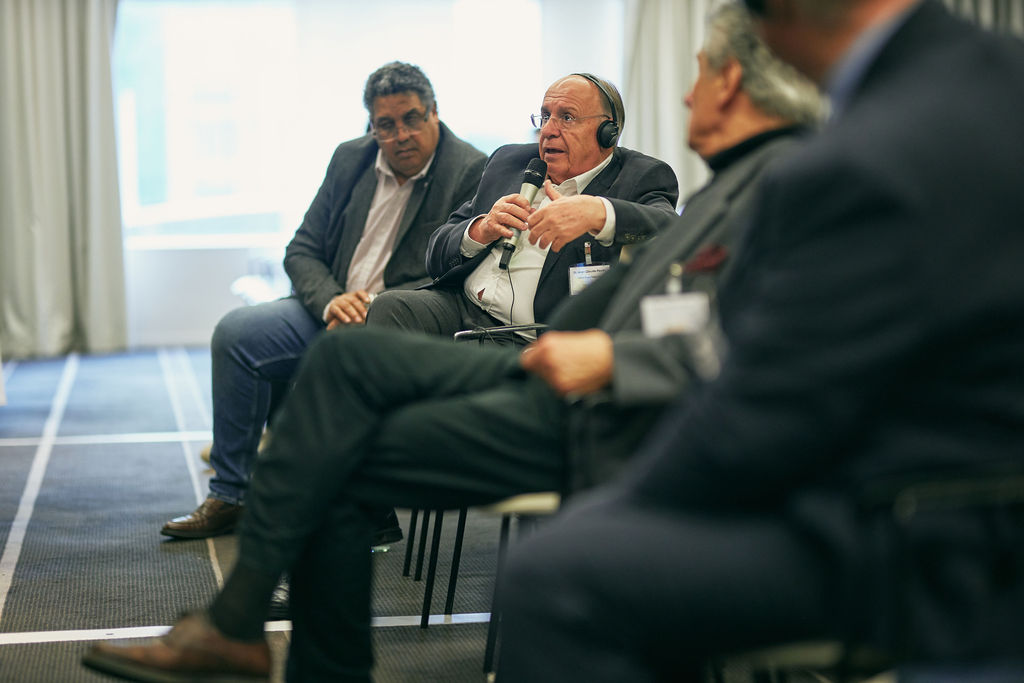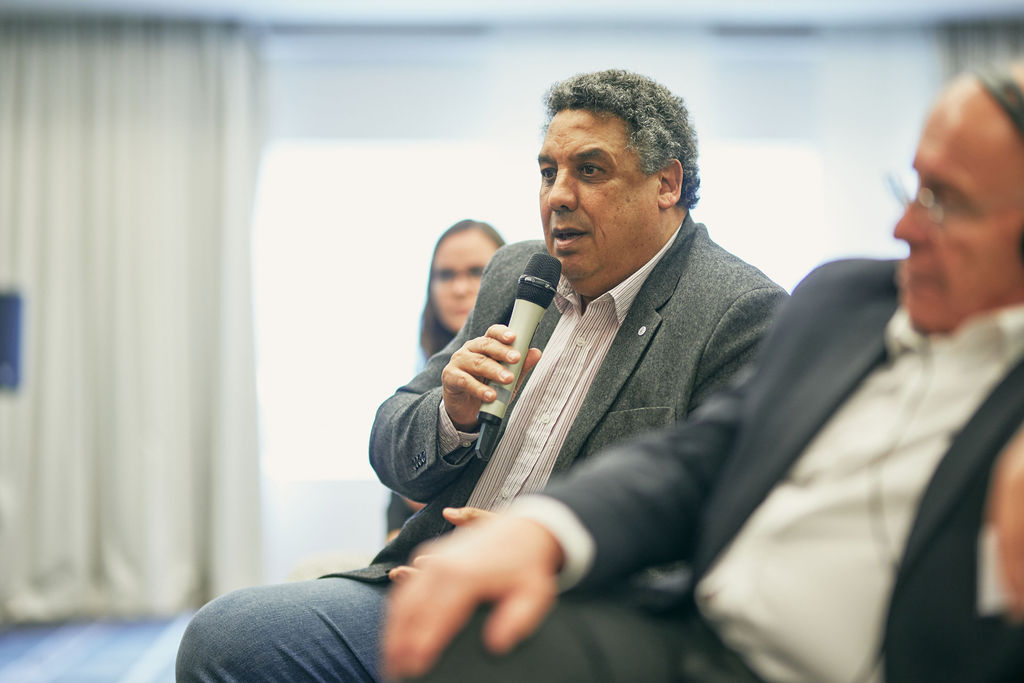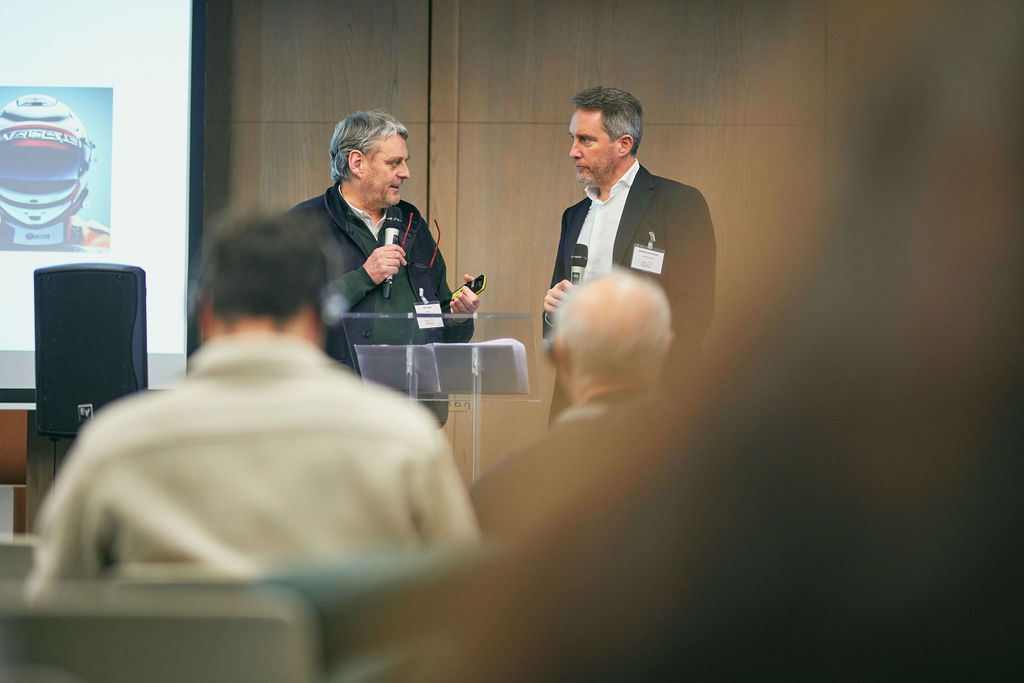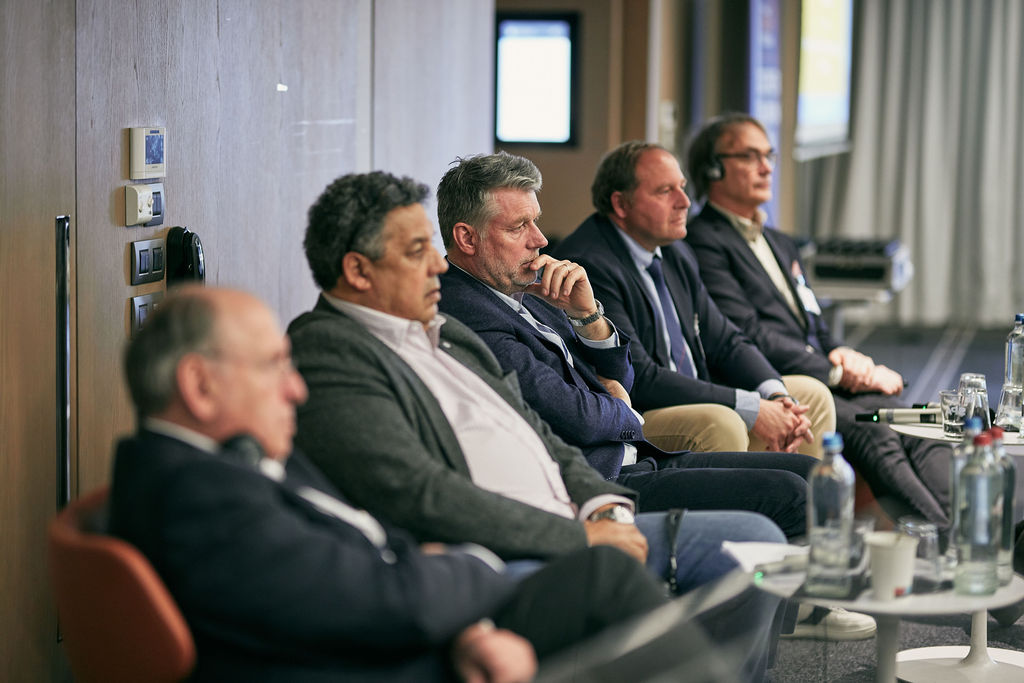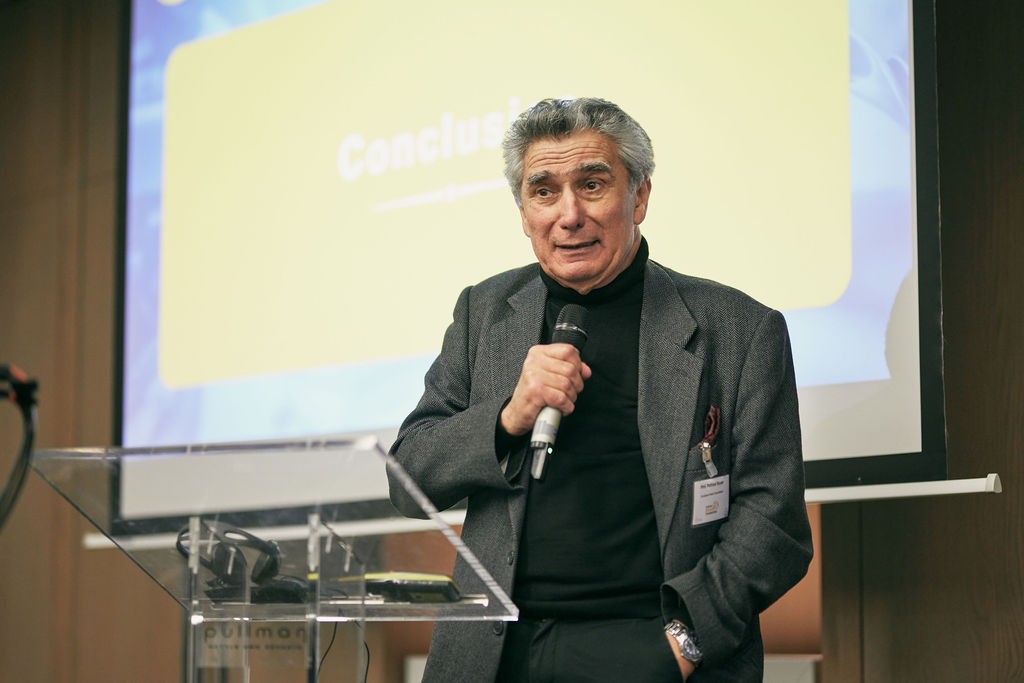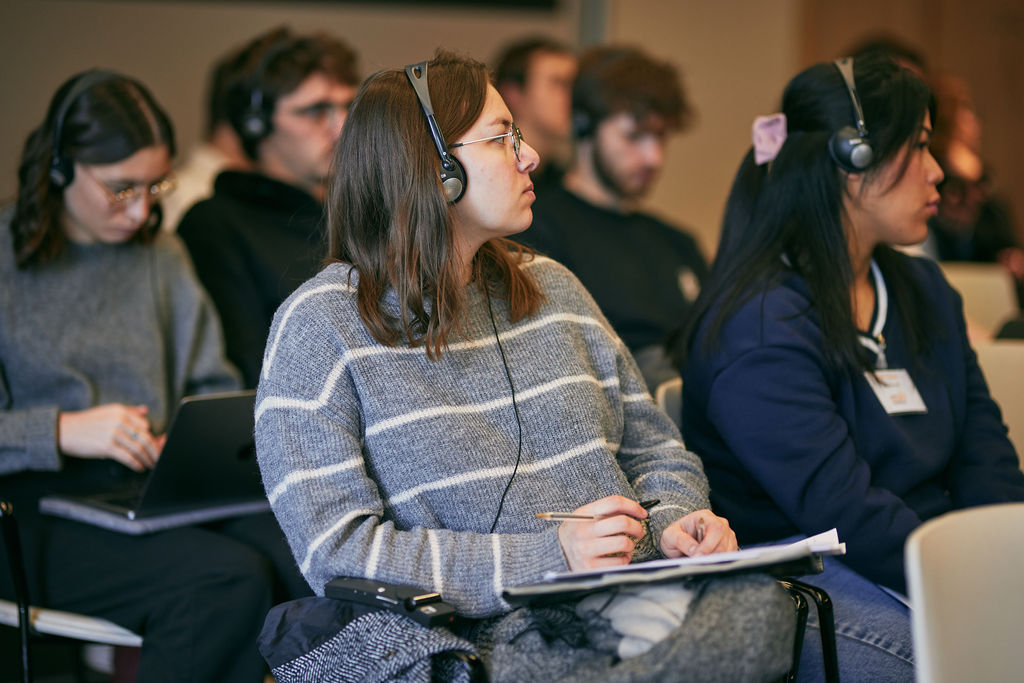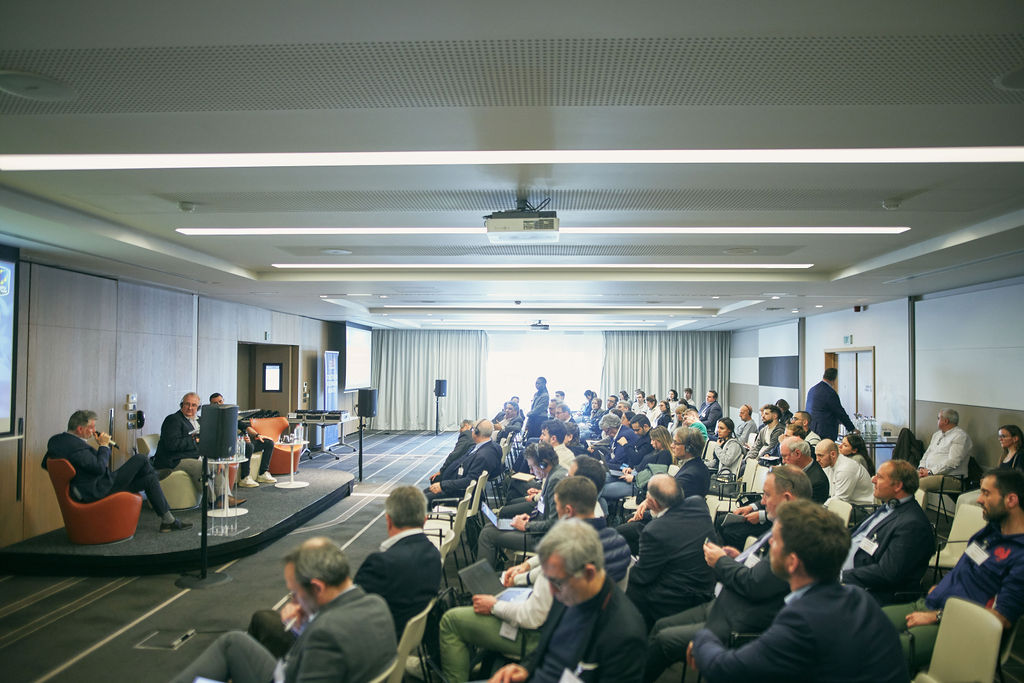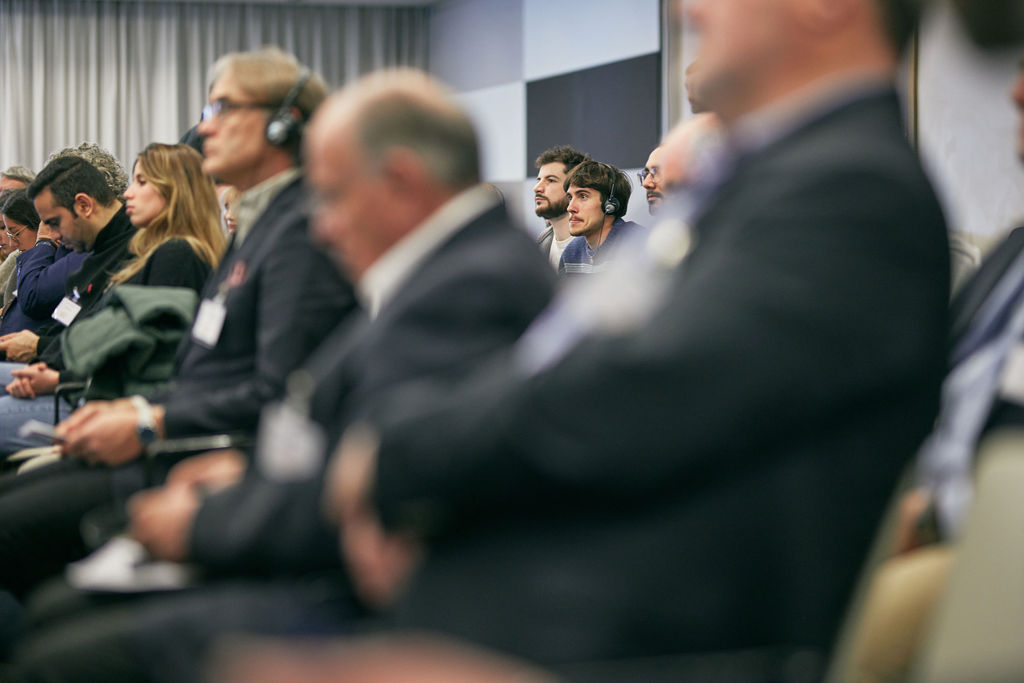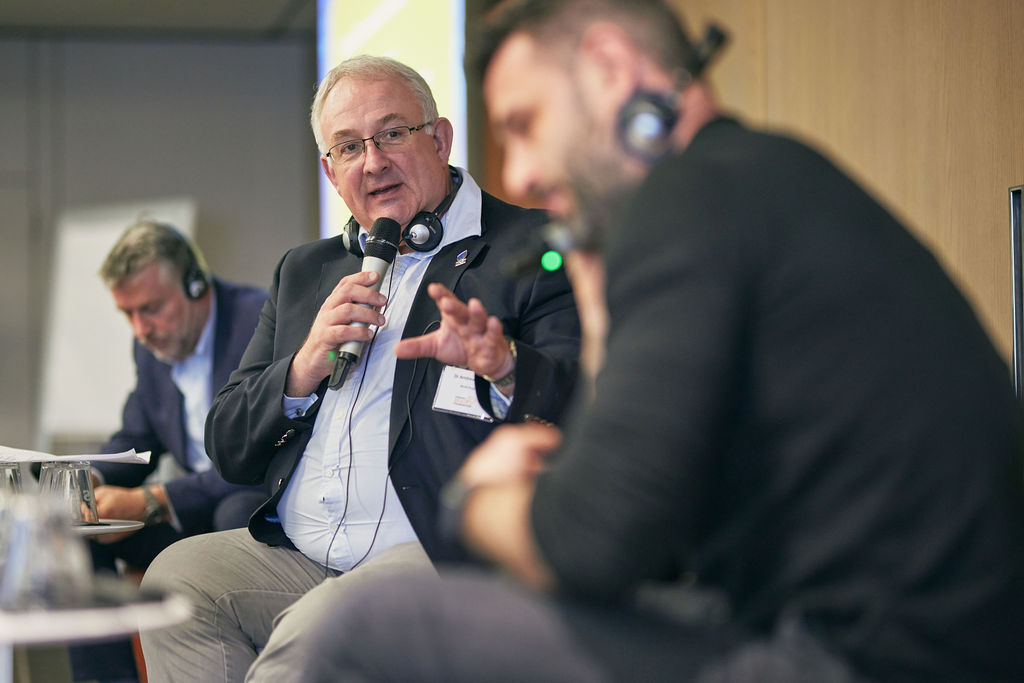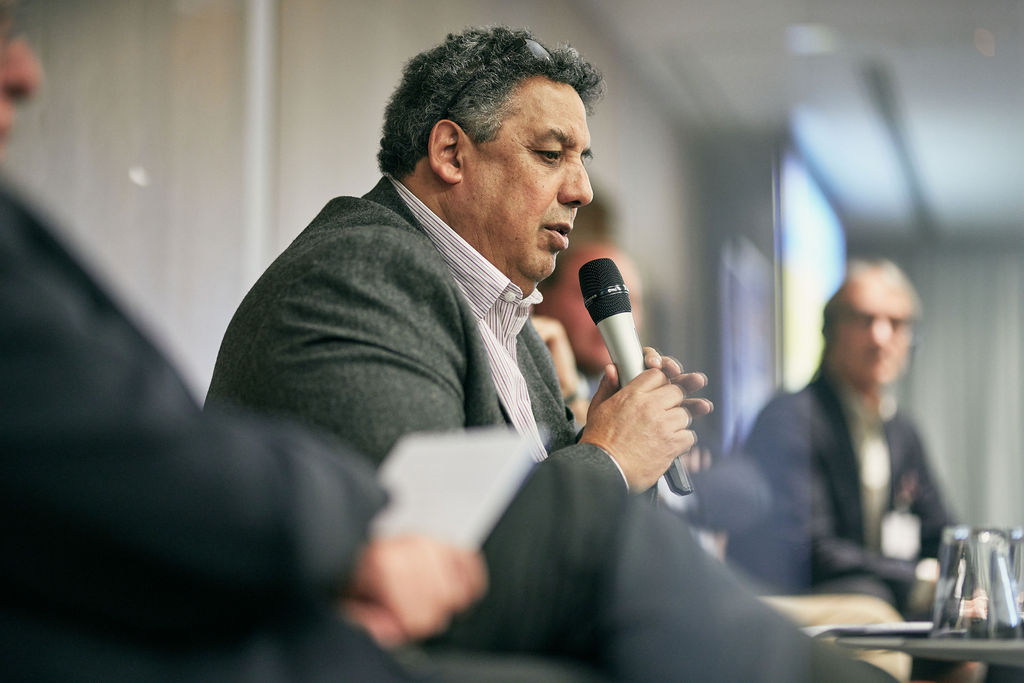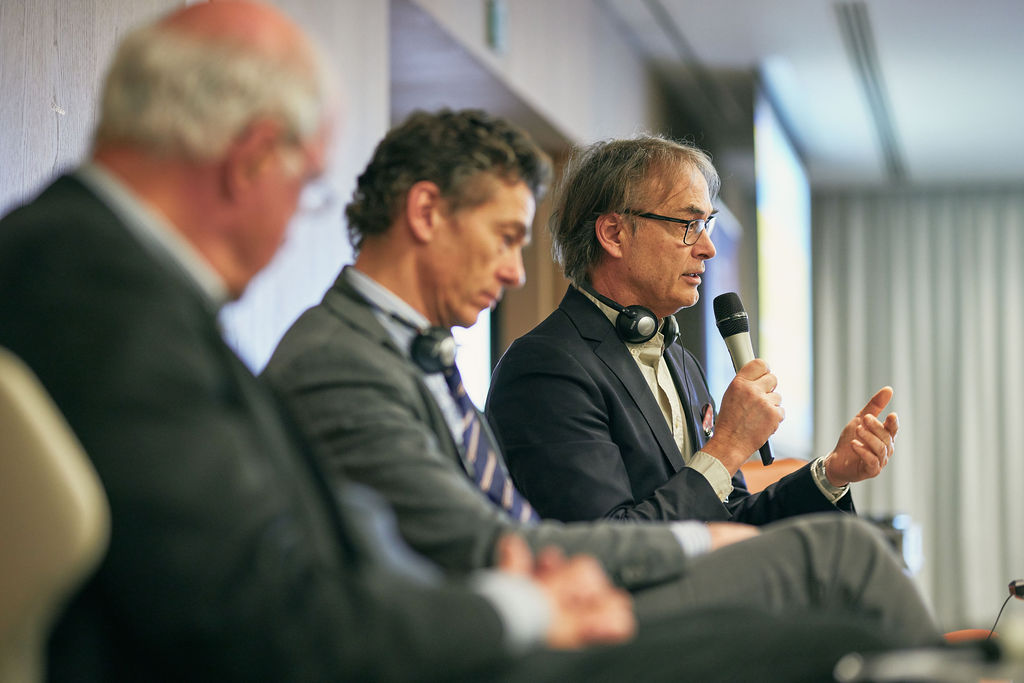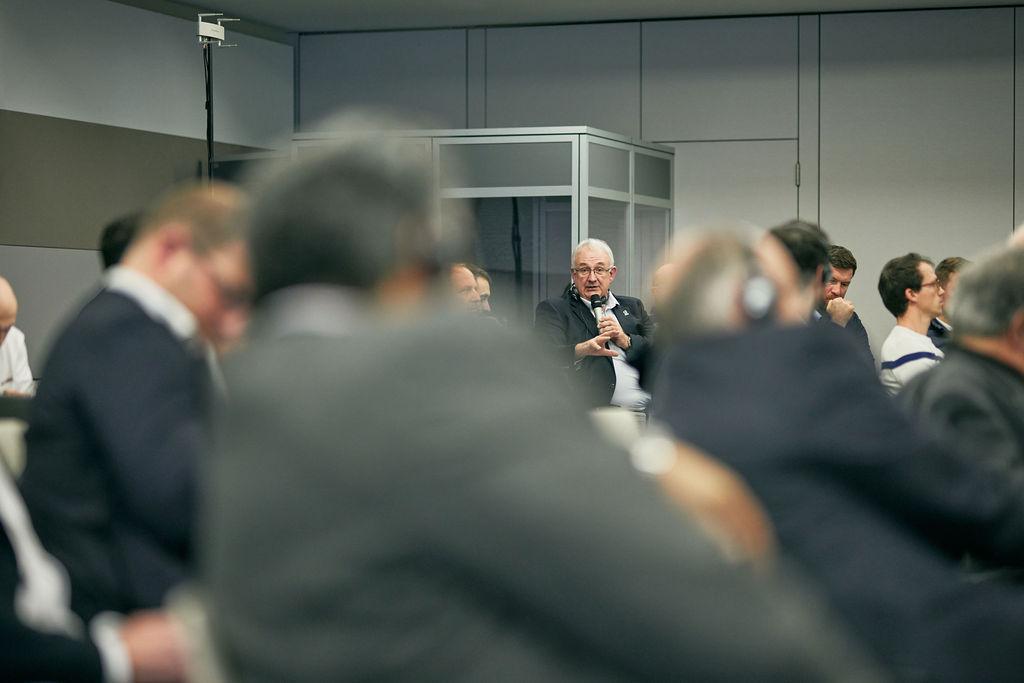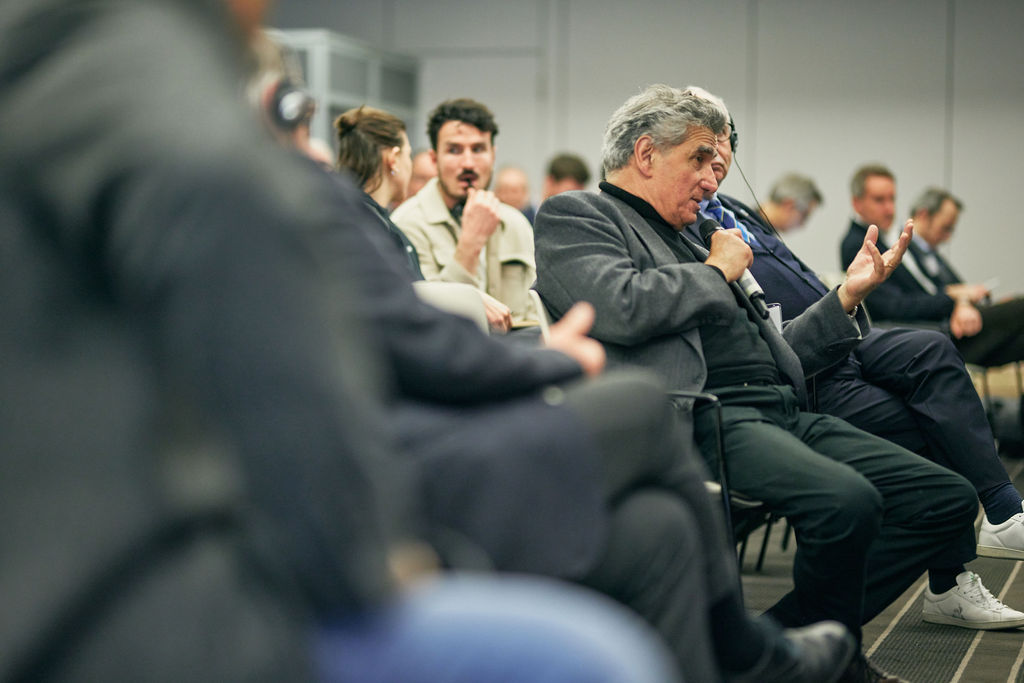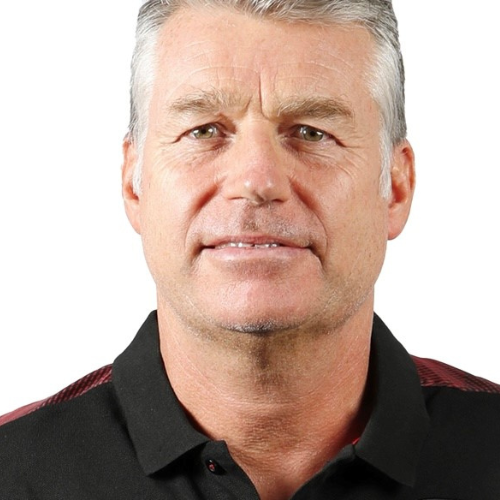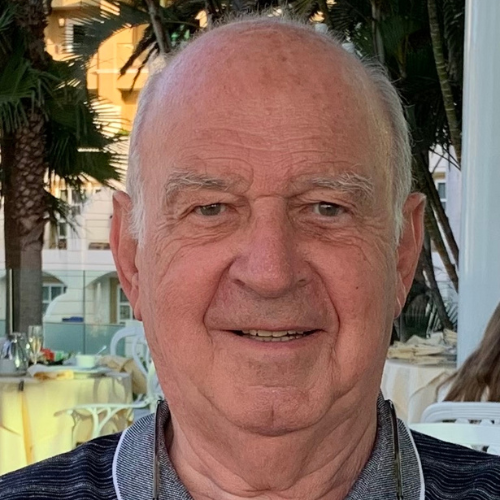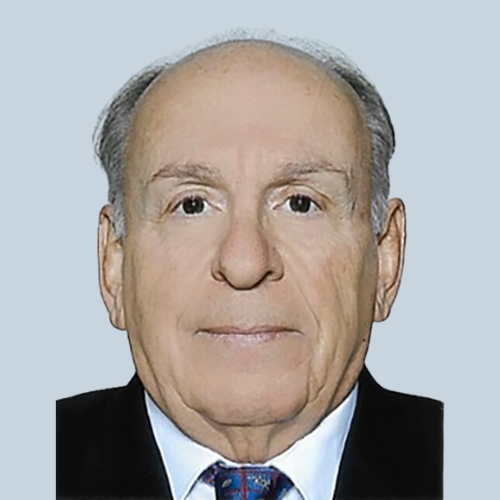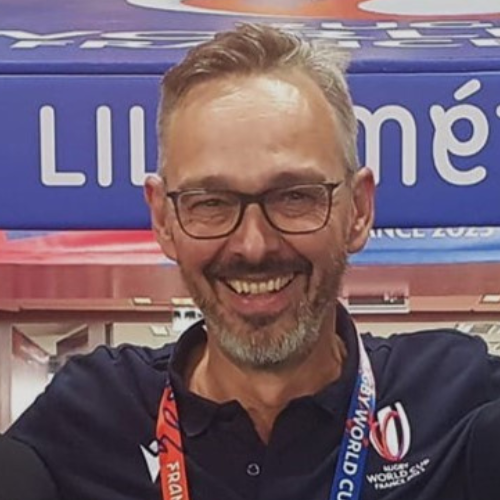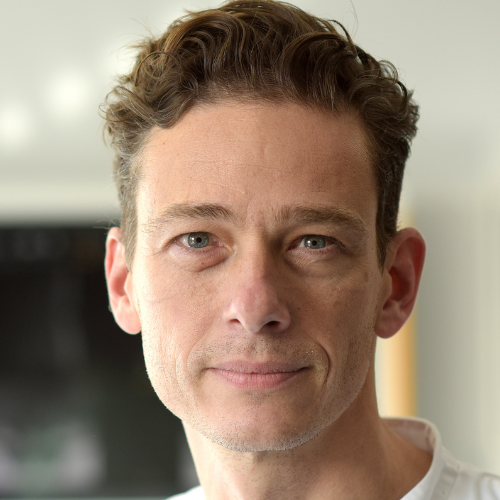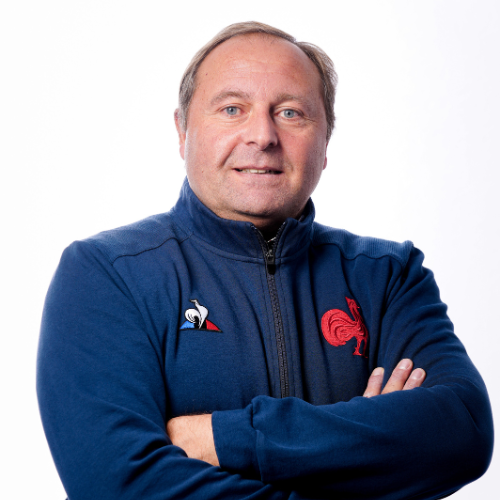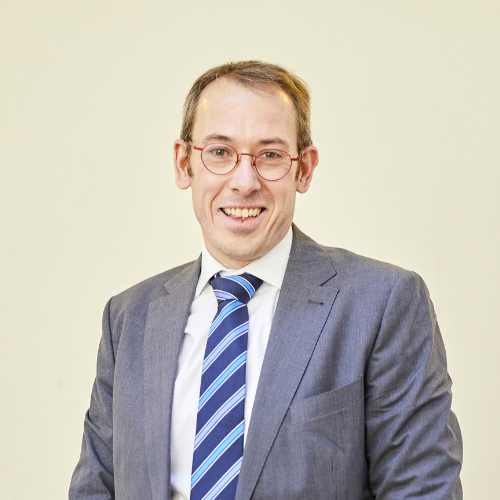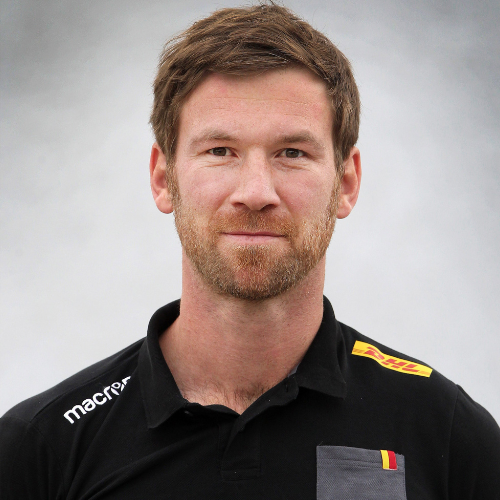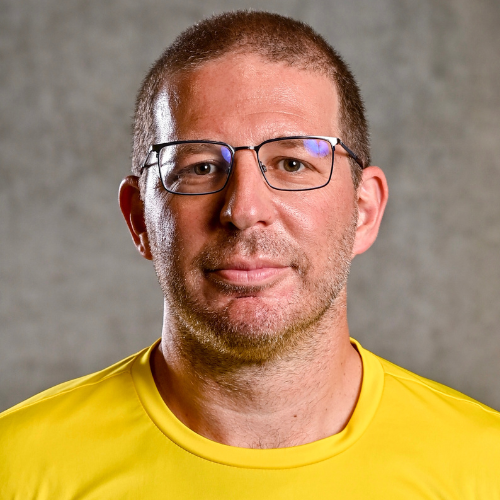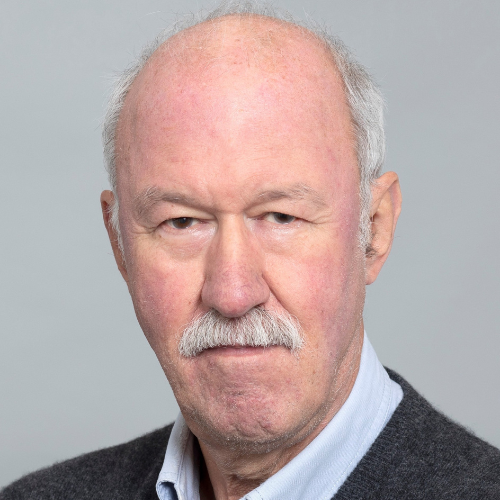
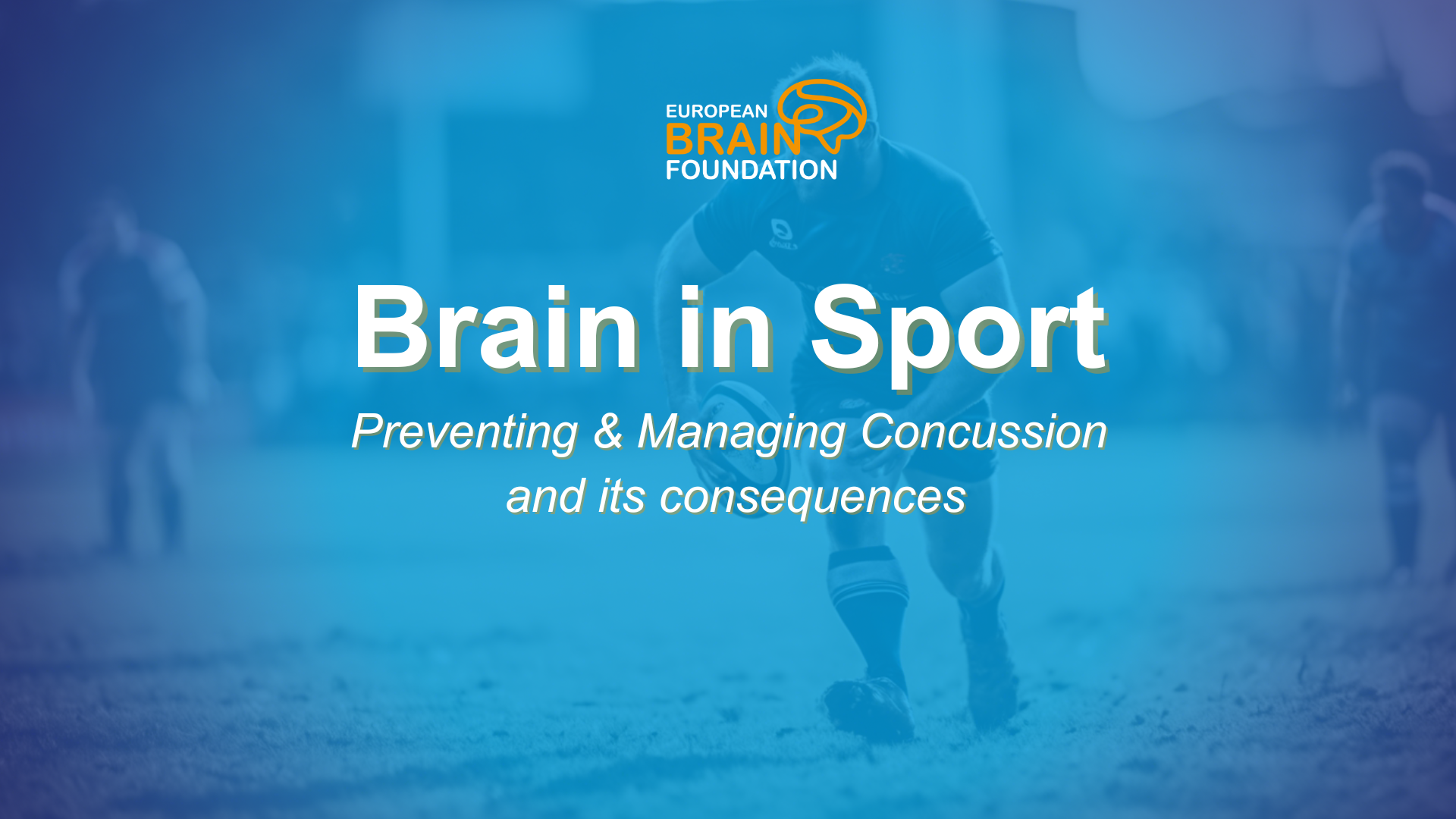
Brain in Sport: Preventing & Managing Concussion and its Consequences
February 24, 2024 @ 09:00 - 17:00
Pour lire cette page en français, cliquer ici.
Organisers
Event Highlights
On February 24, the European Brain Foundation (EBF), in partnership with Rugby Europe, held its first public event on the subject of Brain in Sport dedicated to concussion, providing the most comprehensive information possible on concussion and its treatment, including key opinion leaders and experts in field to share state of play in a medico-scientific perspective and testimonies from players, to better understand where the risk of concussion and head trauma in a particular sport exists and how it best to manage it.
In recent years, sports federations across the world, in particular rugby federations, have turned increased attention to concussion and raising awareness of its occurrence and its consequences, developing monitoring programmes and establishing preventive measures, which have had a significant impact on the number of such accidents. However, awareness raising, education and prioritisation within sport guidelines remains vital.
A concussion is a type of brain injury caused by a blow to the head, prone to occur in sport and while minor at times, can also carry long-term damage and repercussions if frequent and not taken seriously. In fact, concussion is the number one risk factor for neurodegenerative diseases, behavioural issues and mental health problems, including increased suicidality. This makes it a major public health problem, particularly within sport, and a source of worry and stress for athletes – amateur or professional – alongside their families, teams, and federations, countering the notion that sport is an integral part in many lives to keep us fit and healthy.
This event, held both in English and in French, gathered medical managers of various sports federations concerned by head injuries, rugby medical authorities, specialists in concussion research, diagnosis, treatment, and follow-up, as well as trainers and coaches, athletes who have been exposed to this type of accident, physiotherapists, policymakers and students.
The event kicked-off with an introduction from EBF’s Chair, Prof. Patrice Boyer, who reminded participants that traumatic brain injuries are considered as a major public health problem by the World Health Organization. He then recalled the mission of the European Brain Foundation to support research aiming at reducing the burden of brain disorders for European citizens. Dr. Colin Grzanna, General Secretary of Rugby Europe’s Medical Commission then took the floor to detail the way the European federation monitor, prevent, and raise awareness about concussion in Rugby.
The discussion then moved on to the epidemiology of brain concussion, both in Rugby and in Football. Dr. Andy Smith from World Rugby started by sharing the results of the Annual Review of Injury Surveillance Research from the Elite Rugby Union, highlighting differences between men and women in traumatic brain injuries. Dr. Peter Vajkoczy, European Association of Neurosurgical Societies, then followed up on concussion in football, which “might affect more than 200 million soccer players worldwide”.
Dr. Jean-François Kaux, from the Belgian Olympic and Interfederal Committee, and Dr. Niklas Marklund, from Lund University then discussed the Symptomatology and Diagnostic of brain concussion, highlighting the use of neuroimaging for diagnosis purposes and underlining the increased risk of neurodegenerative diseases and dementias among professional athletes.
Dr Steven Laureys Video Address
“There is this tendency to hide or pretend to be strong, which is this athletes’ mindset: ‘No pain, no gain’. And for post-concussion syndrome, that can be an issue.”
Dr. Steven Laureys, from CERVO Brain Research Centre, then delivered a video address to explain how concussion and traumatic brain injuries can be managed and treated amongst athletes.
Moderated by Dr. Olivier Capel, from the Auvergne Rhône-Alpes Rugby League, then introduced the next session on “How to identify a concussion in different sports”. Dr. Laurent Simar, from the Belgian Rugby Federation, started discussing ways to identify traumatic brain injuries in Rugby, before Dr. Peter Vajkoczy, from European Association of Neurosurgical Societies, presented on the case of Football and Dr. Jean-François Kaux, from the Belgian Olympic and Interfederal Committee, on other sports.
After an open discussion and a Q&A session, the programme moved towards discussing the pathophysiology and neuropathology of brain concussion, and biomarkers of brain concussion, in a panel moderated by Dr. Jean-Claude Peyrin, from the French Rugby Federation, Dr. Flavien Girard (Rugby 7 France), Dr. Romain Loursac (LOU Rugby), and Dr. Vincent Sapin (Medical Committee, ASM-CA Rugby).
After the lunch break, where participants had the opportunity to network and engage with speakers, the programme moved on to exploring ways to preventing concussion. Jos Claes, Engineering & Project Management at Dallara, started by discussing concrete ways to protect pilots in racing, with the event’s master of ceremony, Stéphane Lémeret, before Dr. Christian Wahlen‘s, Chief Medical Officer at the racetrack of Spa-Francorchamps, video address was shown to participants.
The next panel, moderated by Dr. Andy Smith, tackled the guidelines implemented in rugby federations, the management of brain concussion on the bench, and explored the moment when it can be considered safe for a player to return to the game. Dr. Romain Loursac and Dr. Olivier Capel shared their insights, mentioning the management in amateur games through the blue card.
After an open discussion with attendees and a Q&A session, the programme moved on to exploring short- and long-term consequences of brain concussion. Moderated by Dr. Manfred Westphal, from the Board of Directors of the European Brain Foundation, the panel brought the experience of famous players and sport personalities to the table. Measures taken by official bodies were discussed by Dr. Niklas Marklund and Dr. Peter Vajkoczy, alongside a testimony from National Rugby League’s Edouard Coetzee.
For the last panel discussion of the day, Stéphane Lémeret sat with Dr. Jean-Claude Peyrin, Dr. Olivier Capel, Dr. Niklas Marklund, Serge Blanco, French Rugby Player, and Franck Maciello to highlight the key issues in prevention and education – exploring the possibilities and limits of protection, the rules of engagement, how to avoid repetitive insults and the implementation of educational programs.
Prof. Patrice Boyer, Chair of the European Brain Foundation, then delivered its concluding remarks, thanking both speakers and attendees for gathering in Brussels, and shedding light on the public health issue posed by concussion and traumatic brain injuries. He invited the audience to join the Foundation’s initiative #Move4YrBrain, which aims at promoting the importance of physical activity for brain health and wellbeing.
With thanks to the Ladbrokes Foundation, TRAINM and BRAIN-NM for supporting this event.
Speakers

